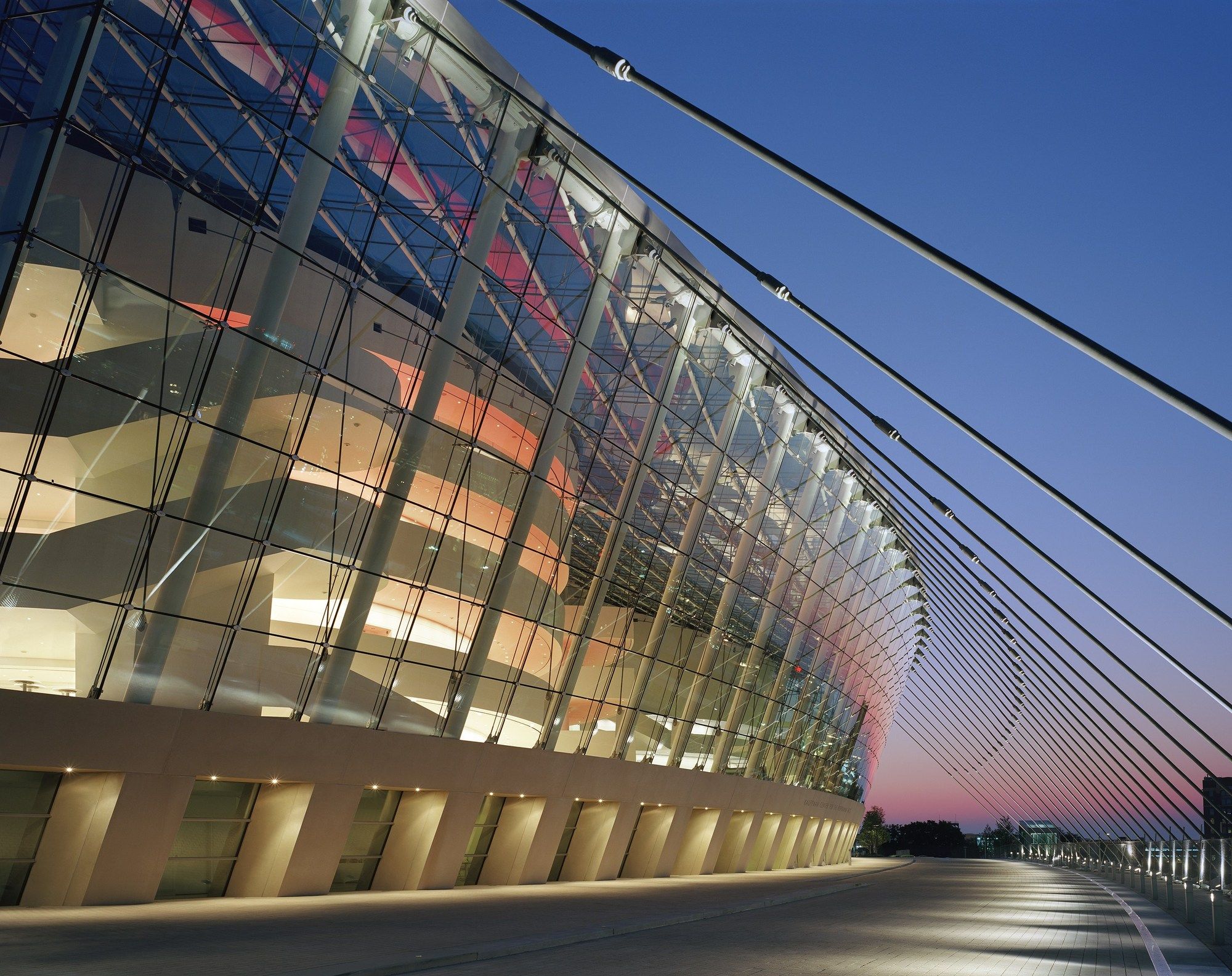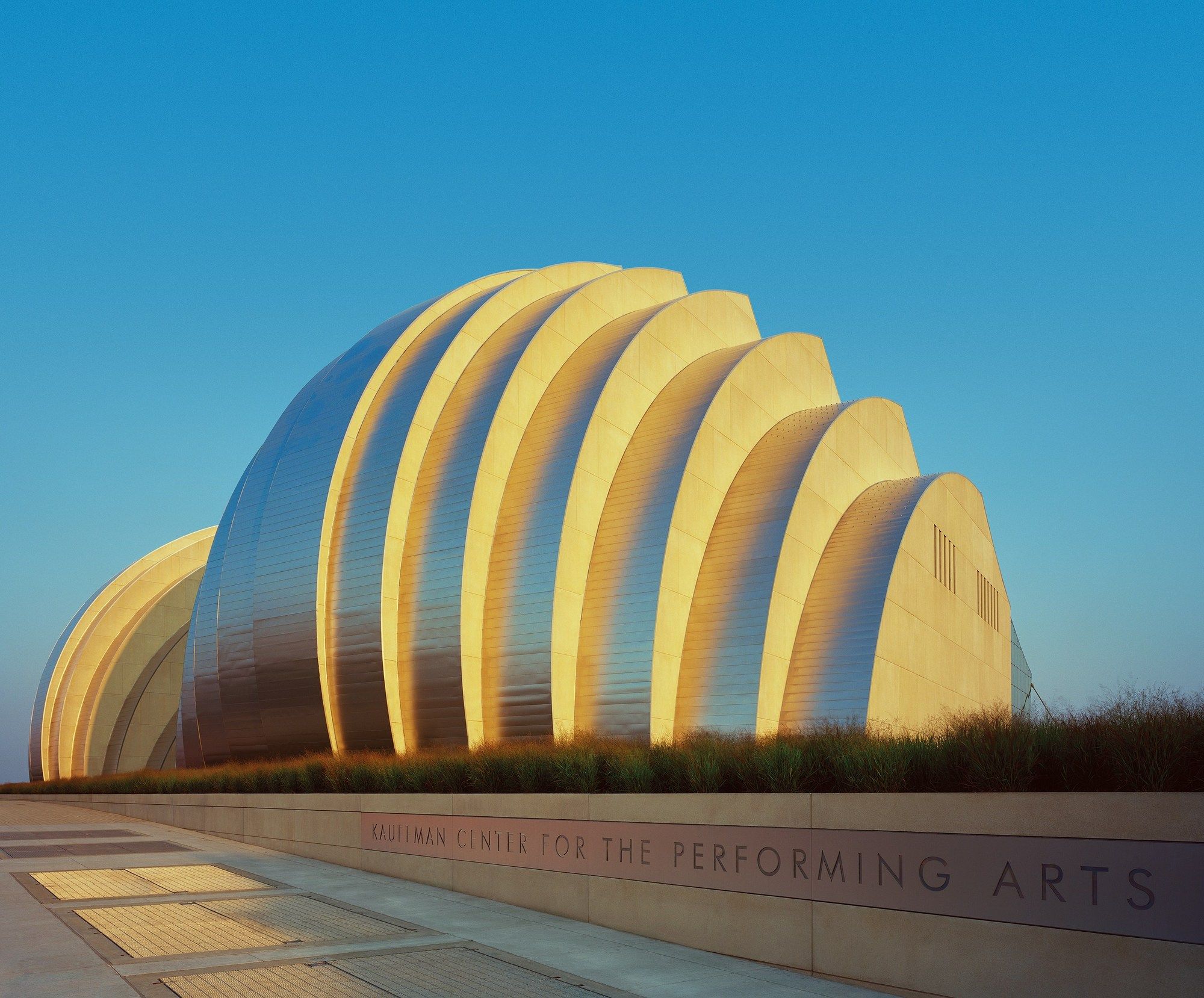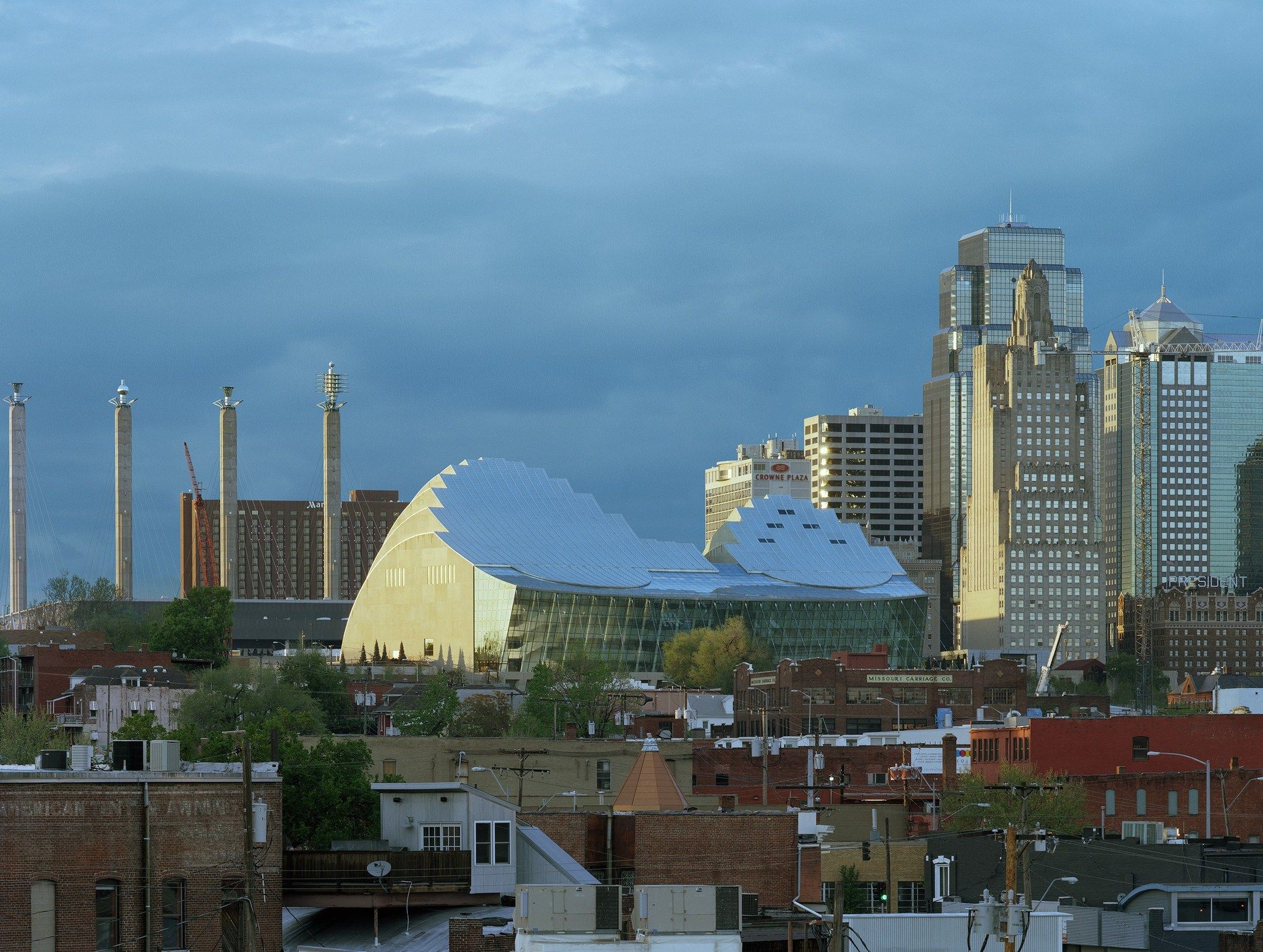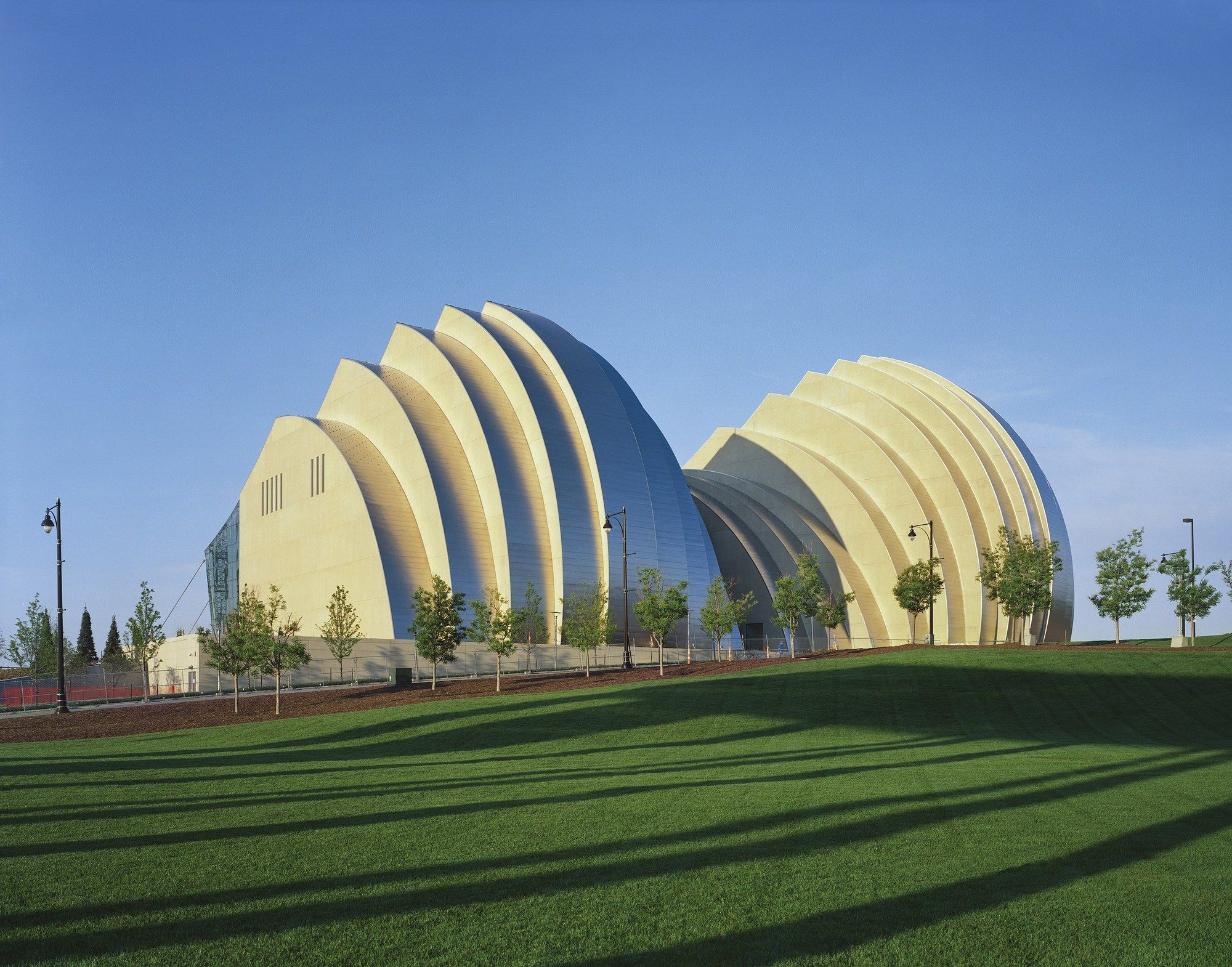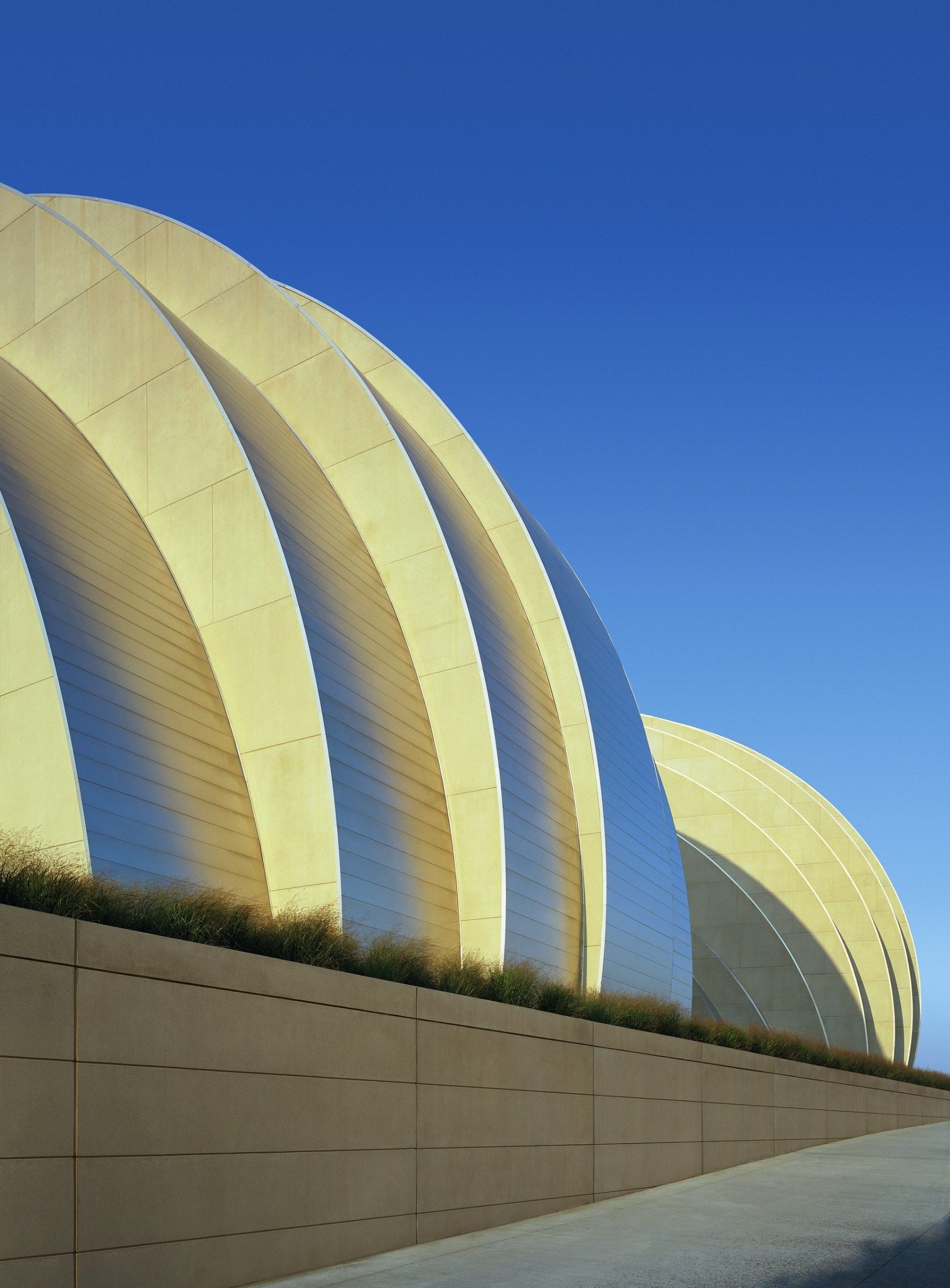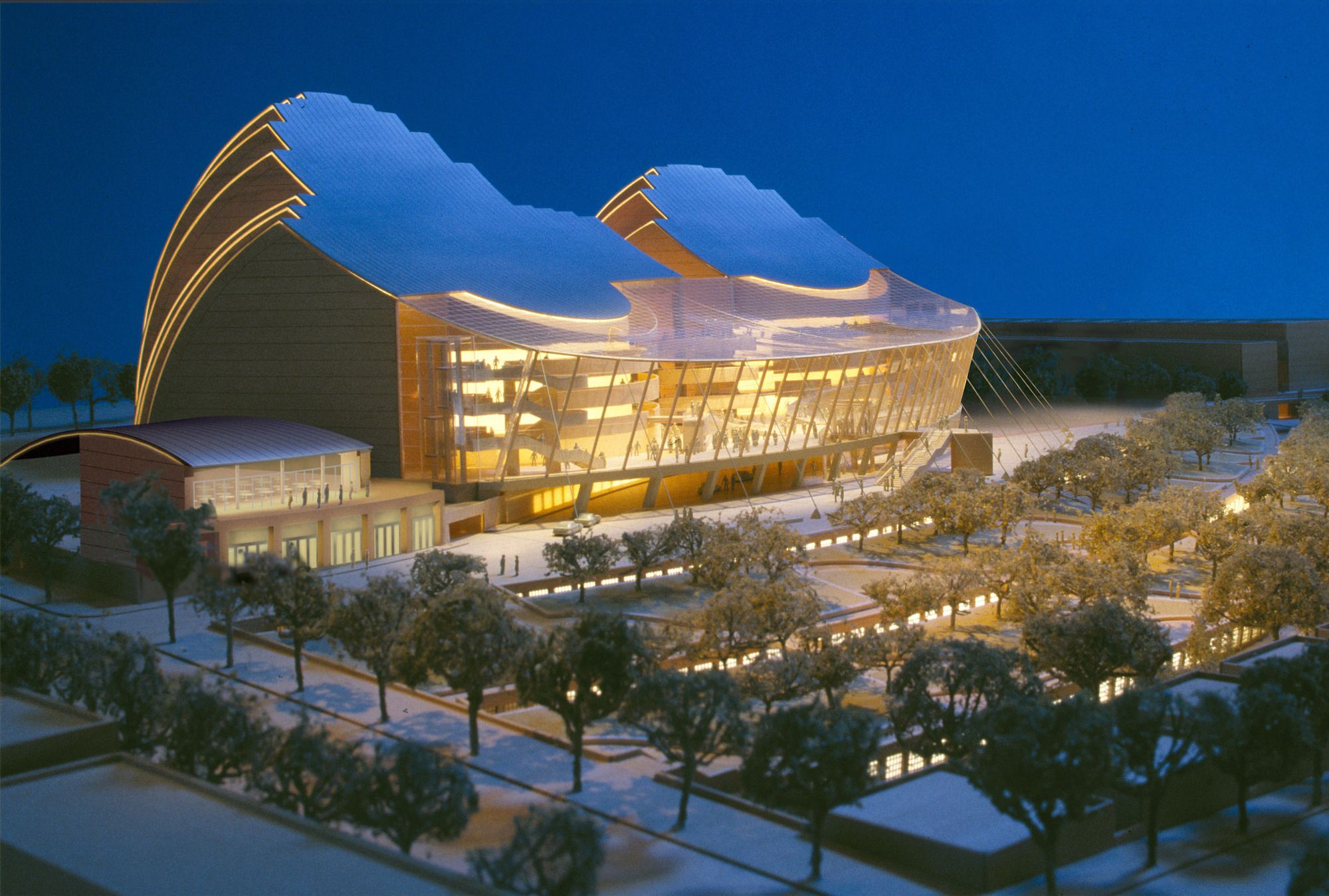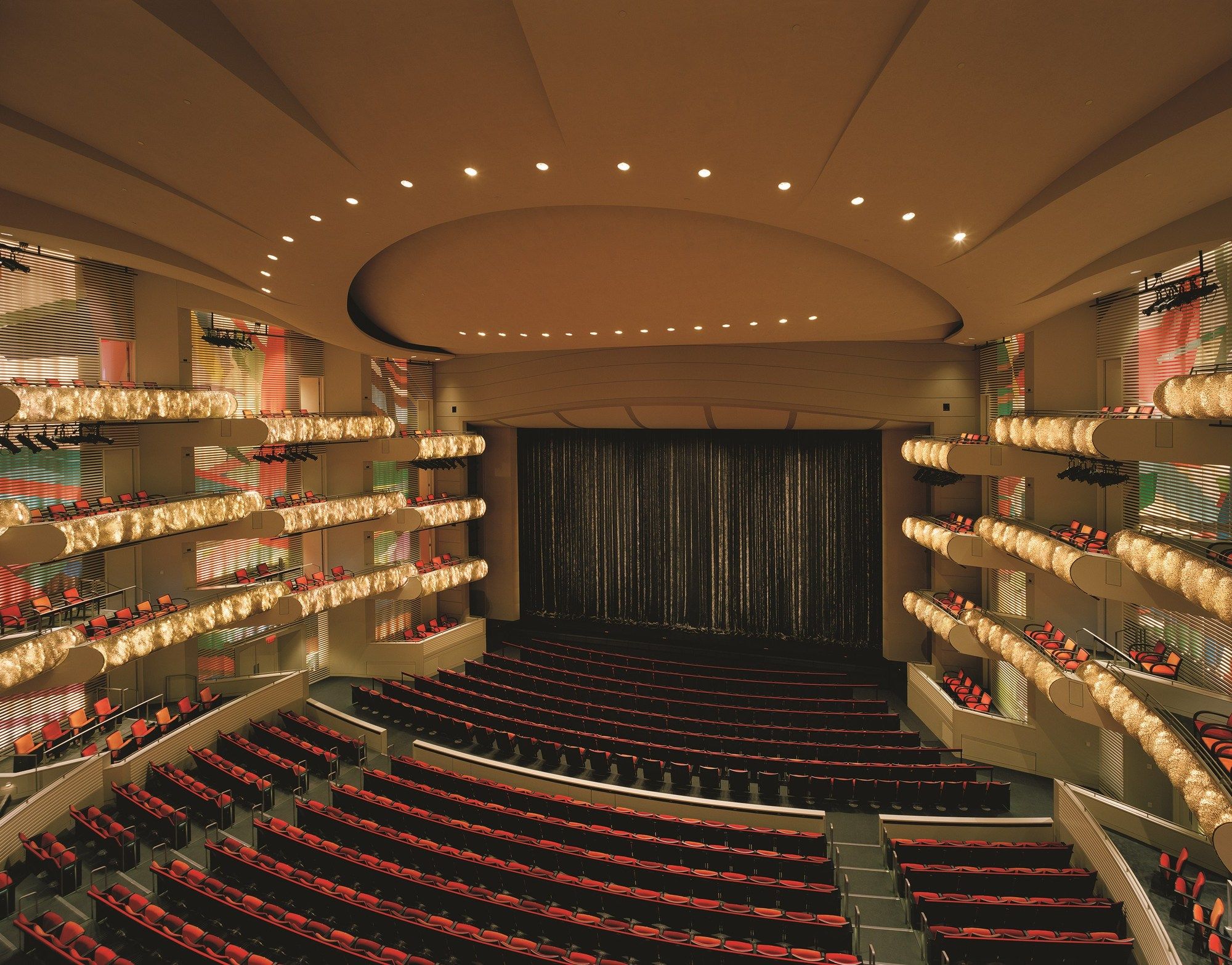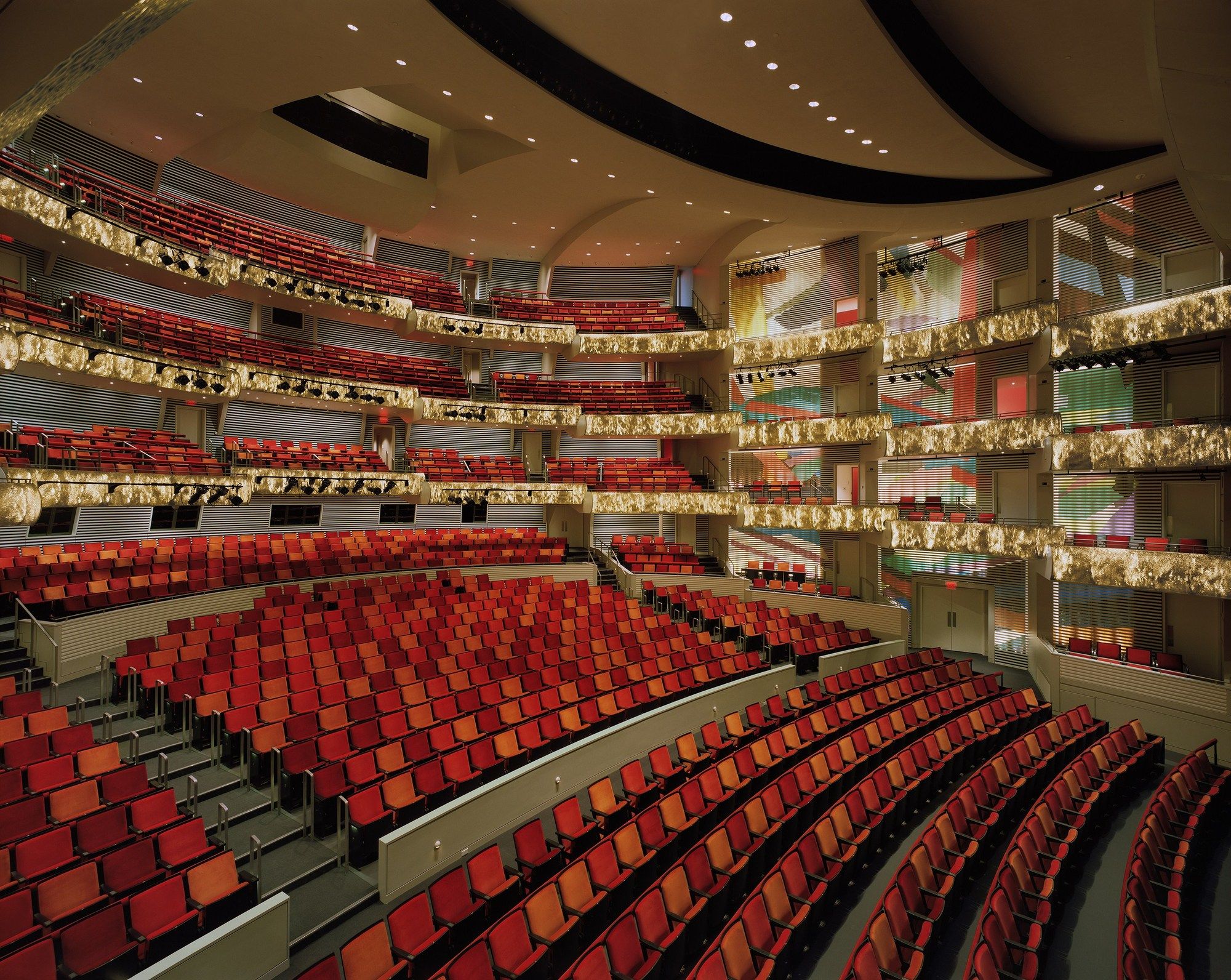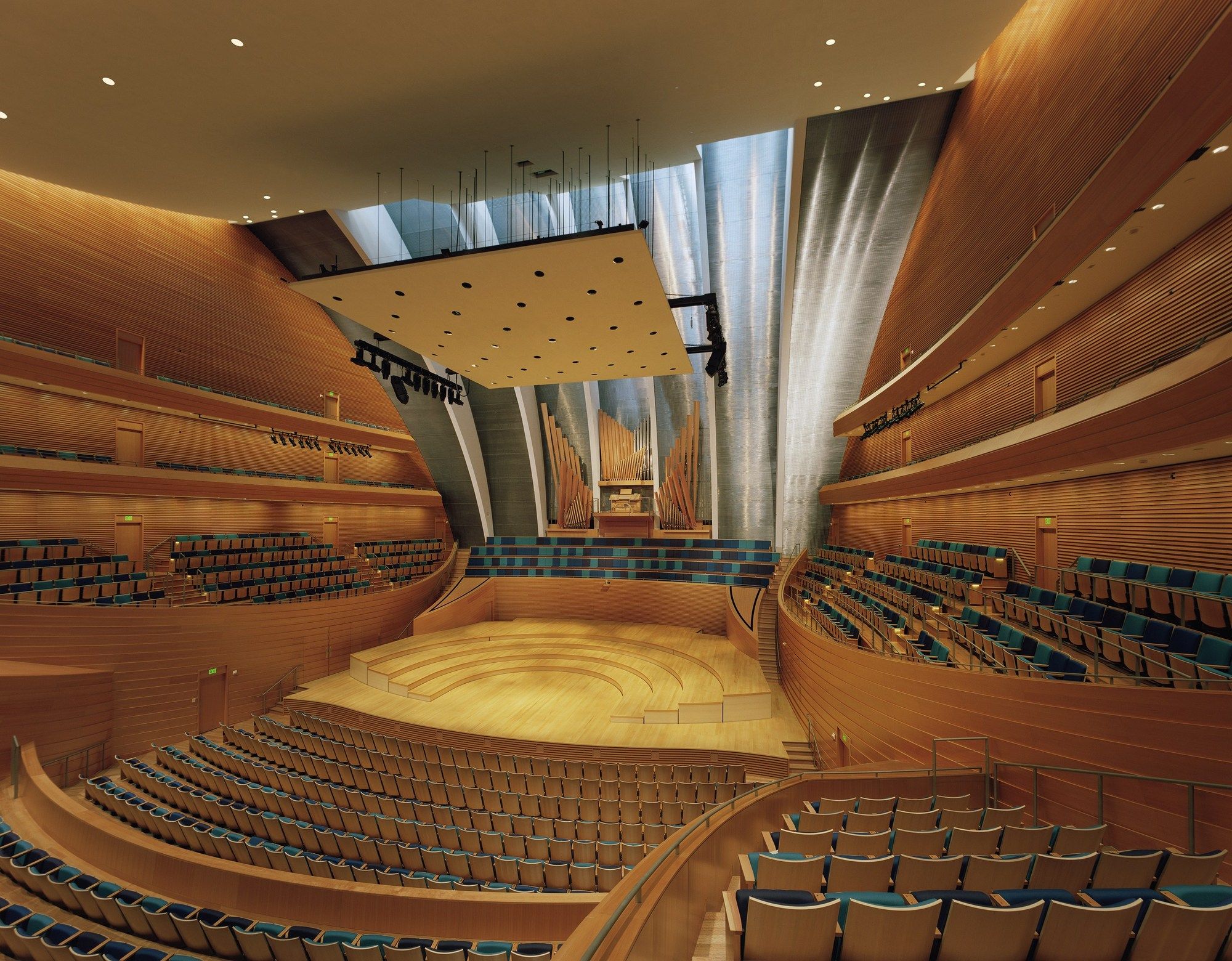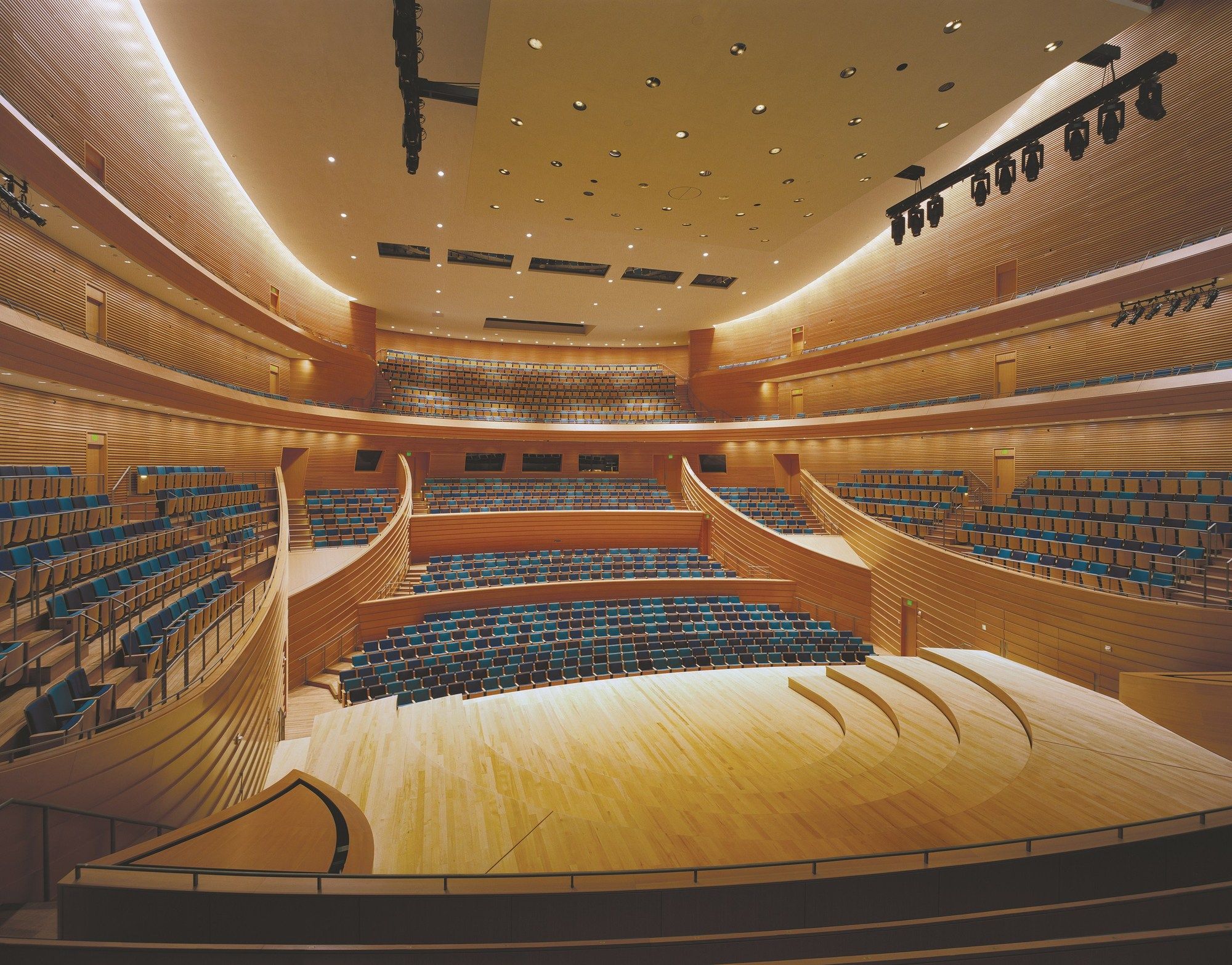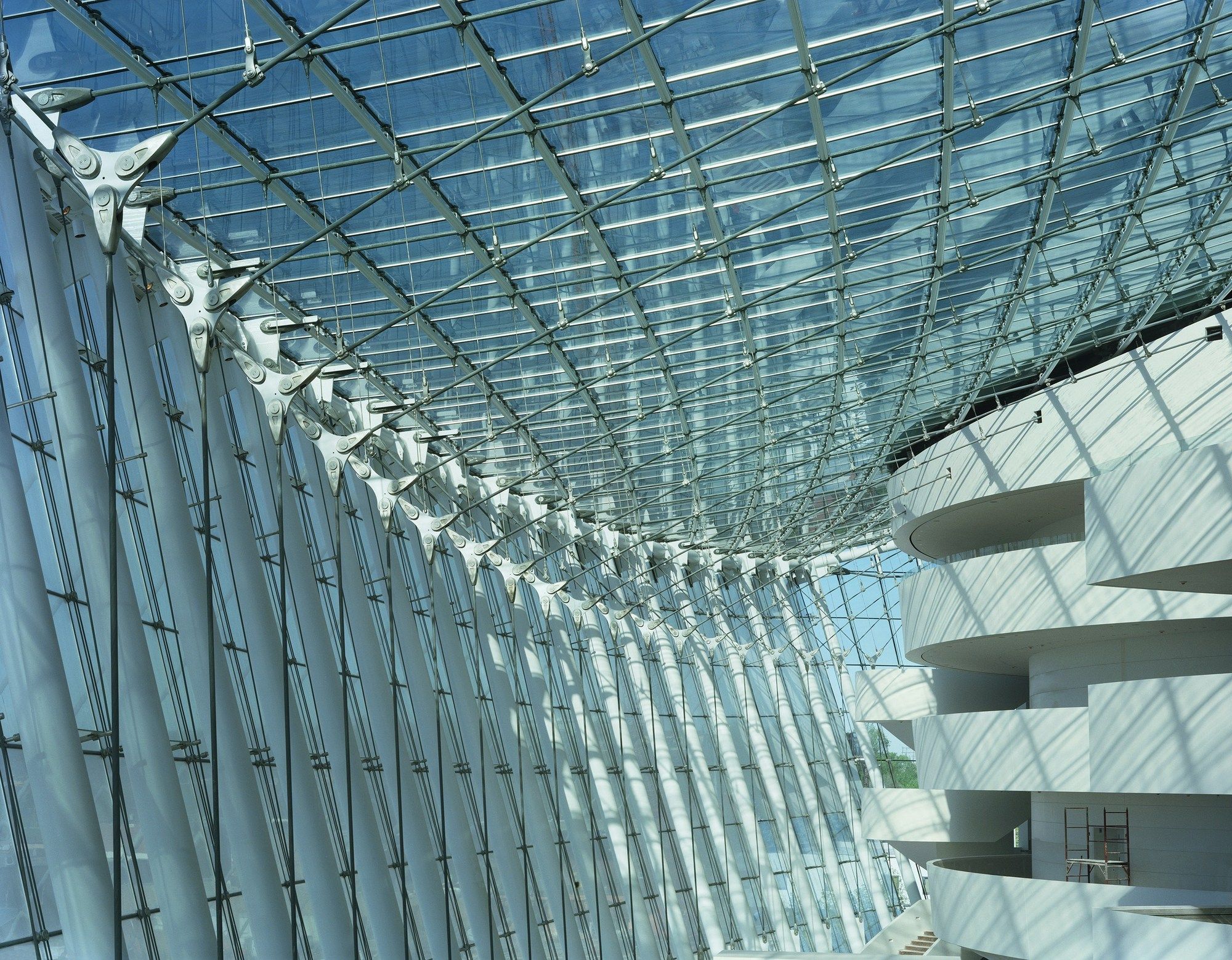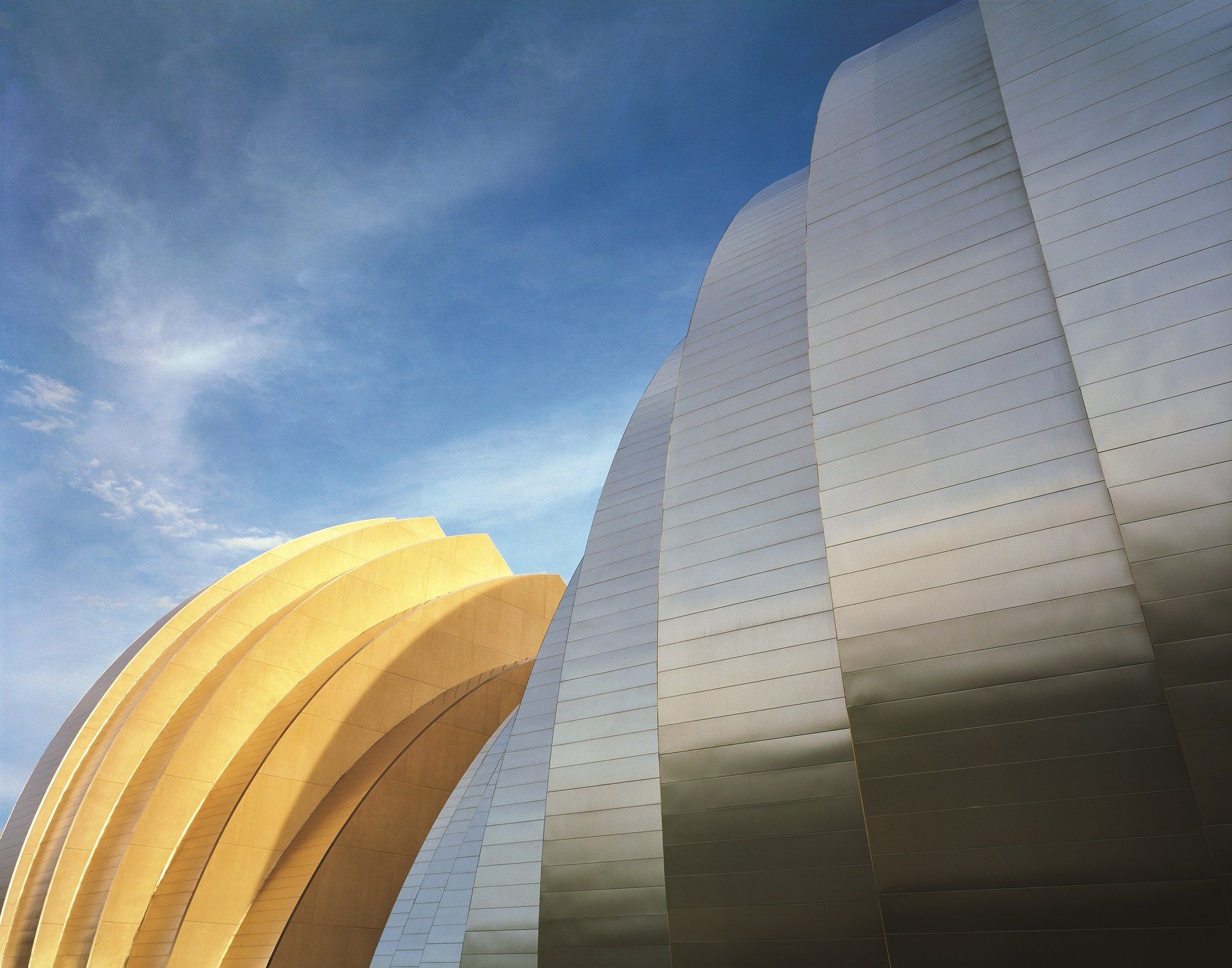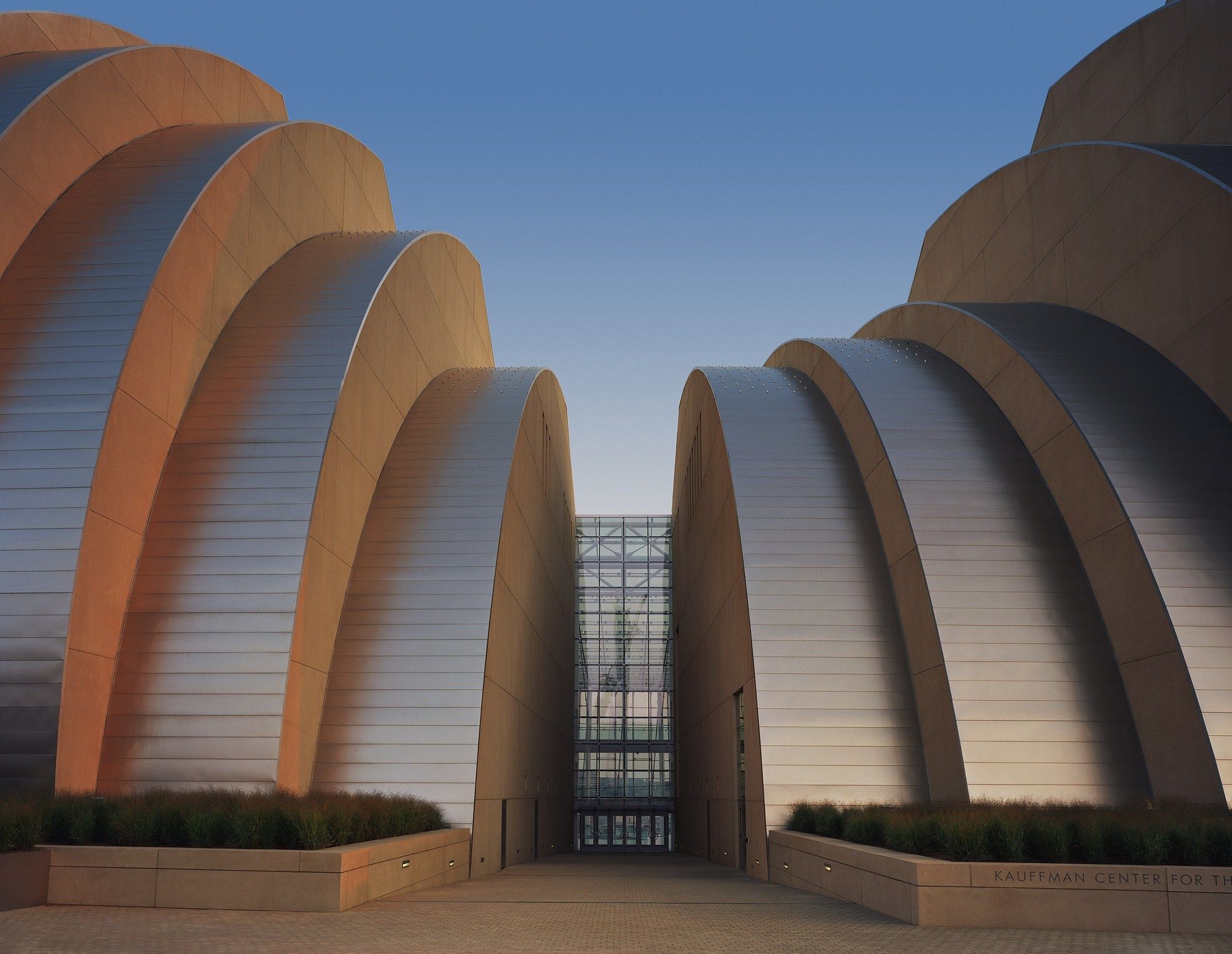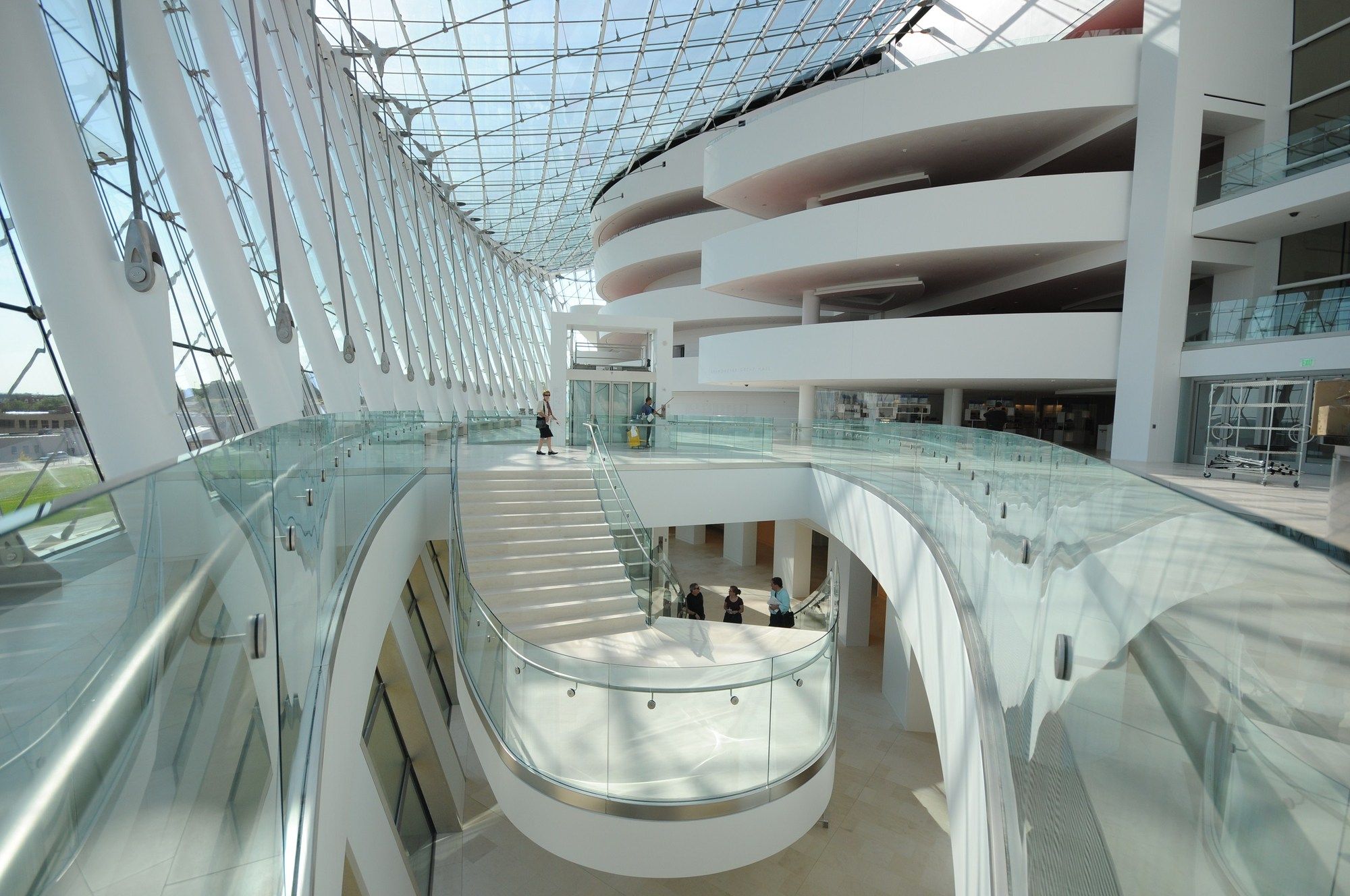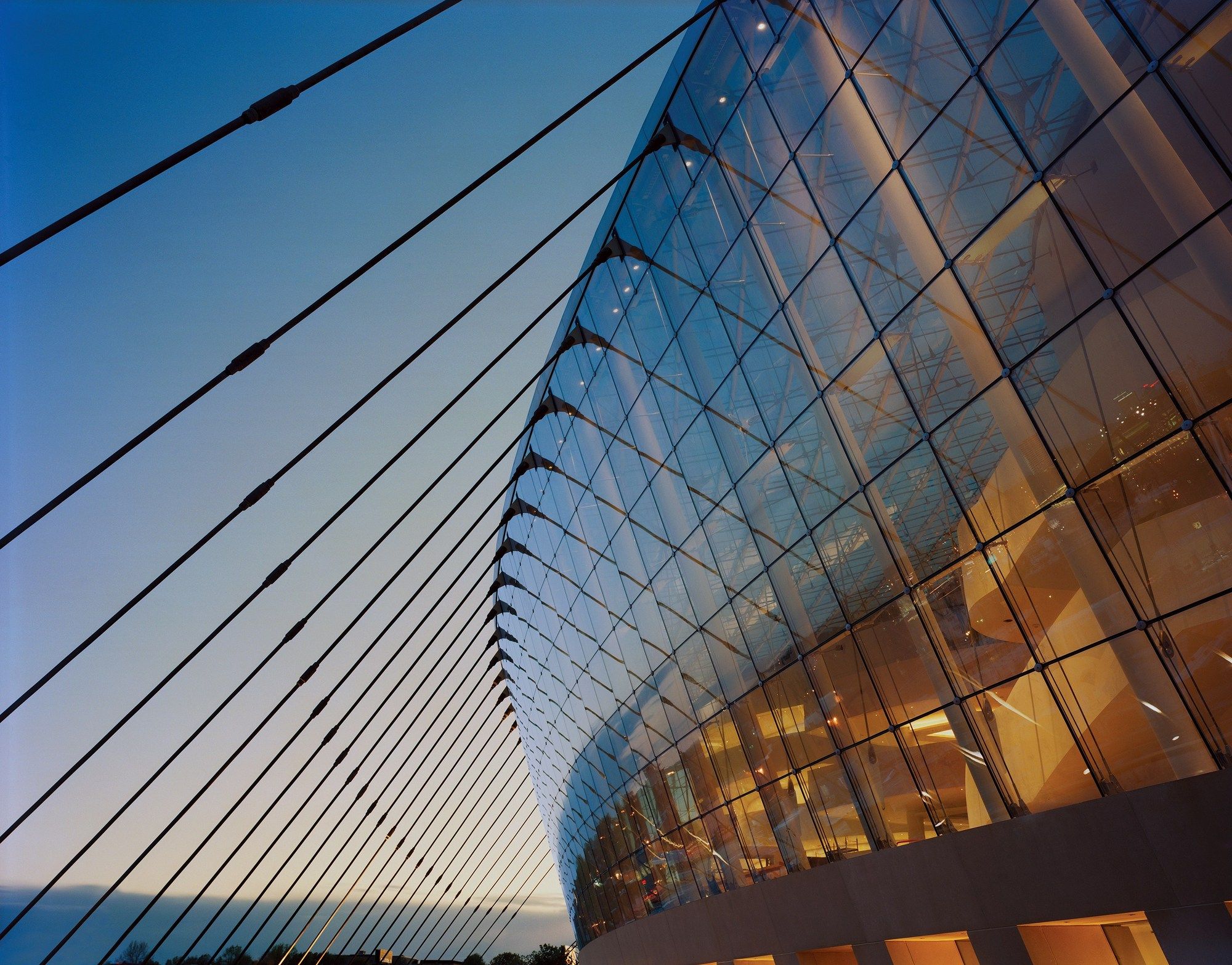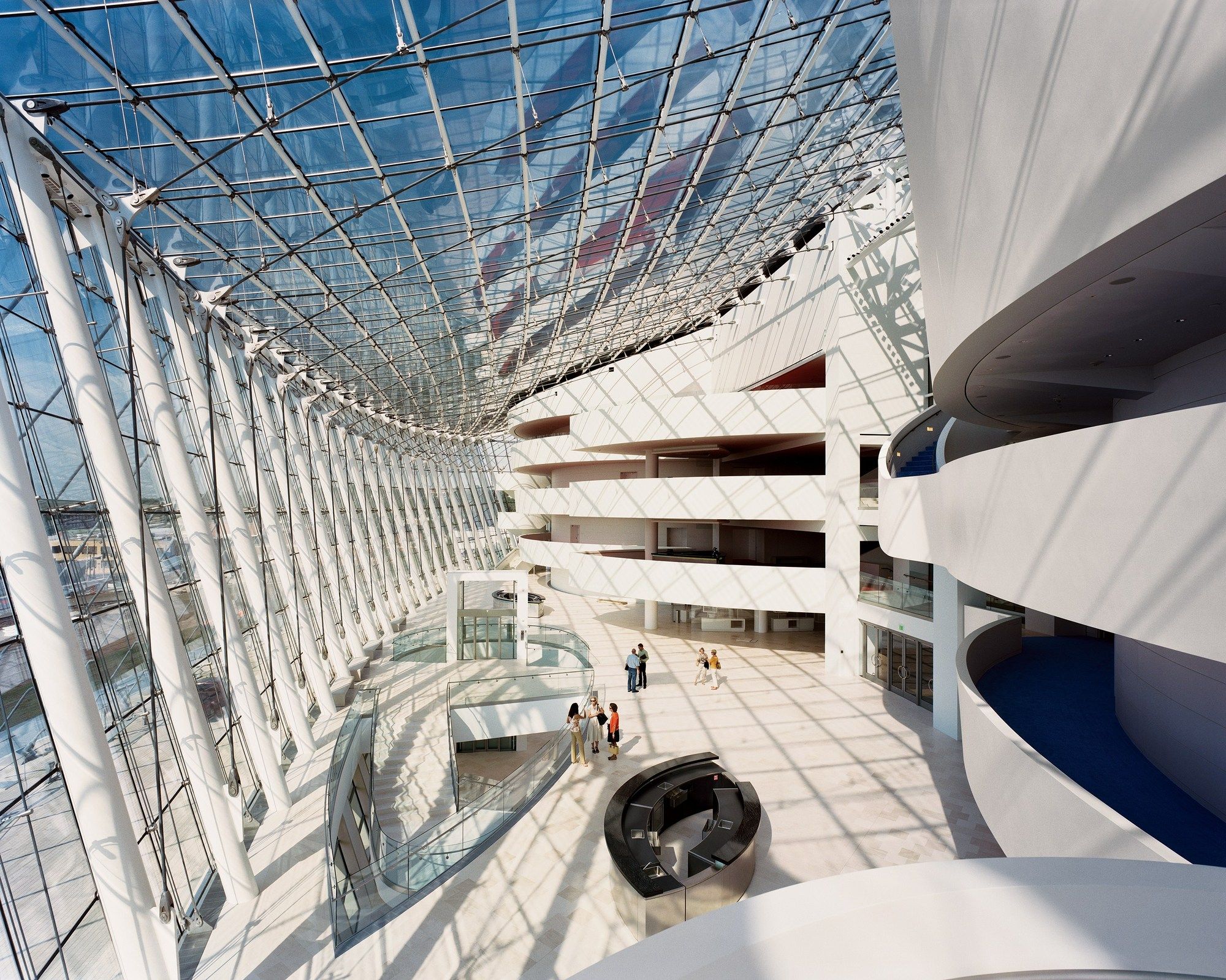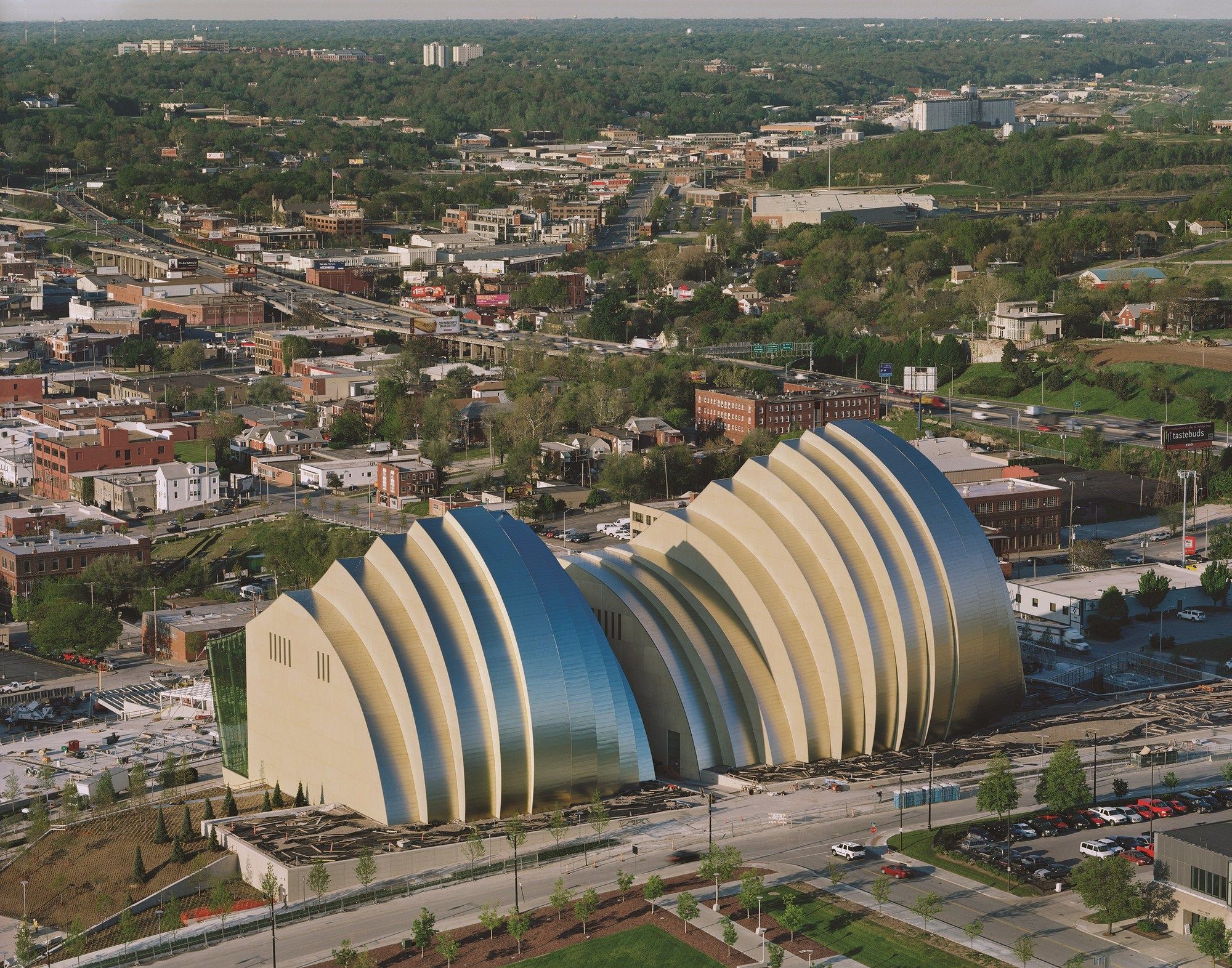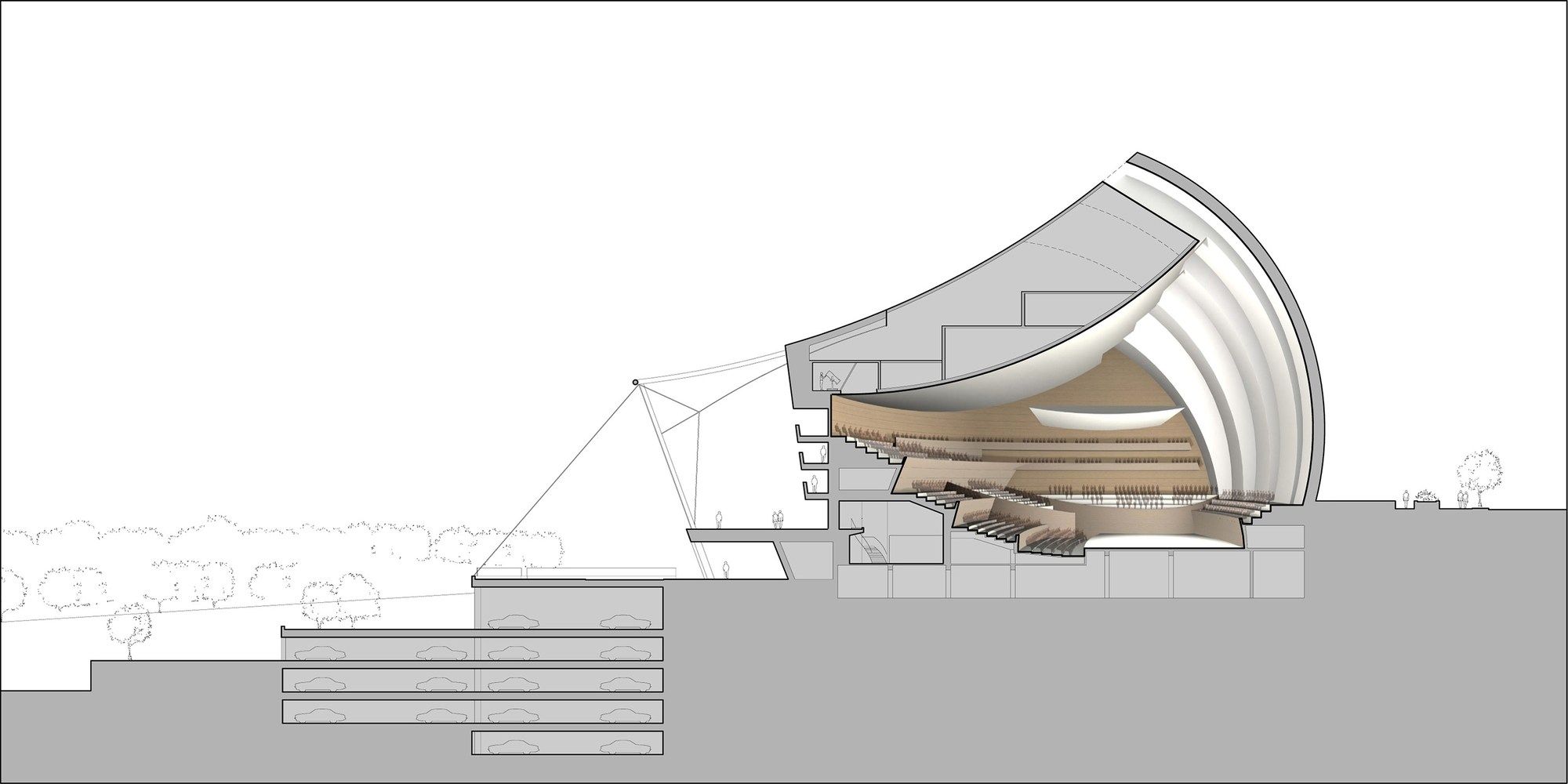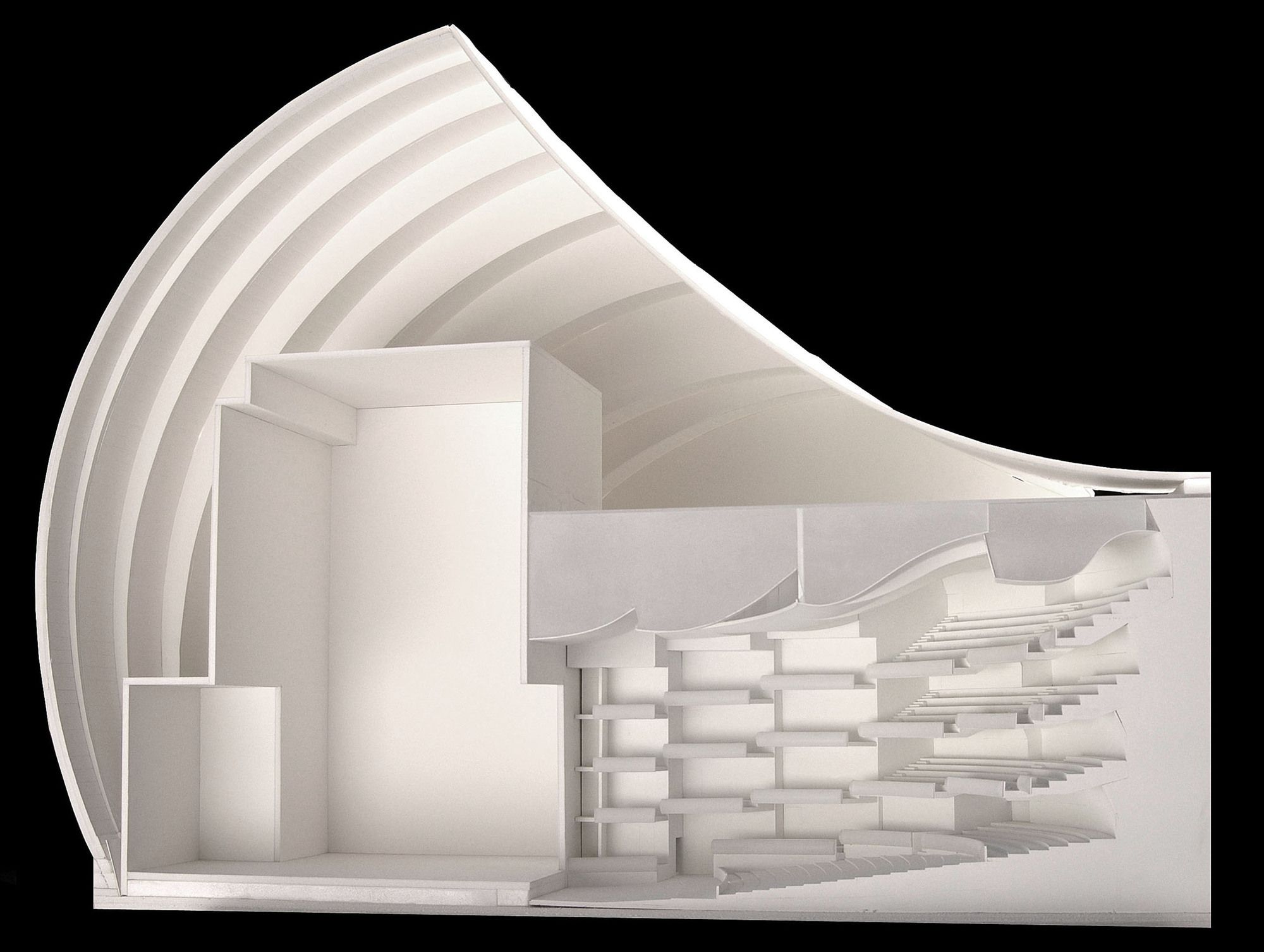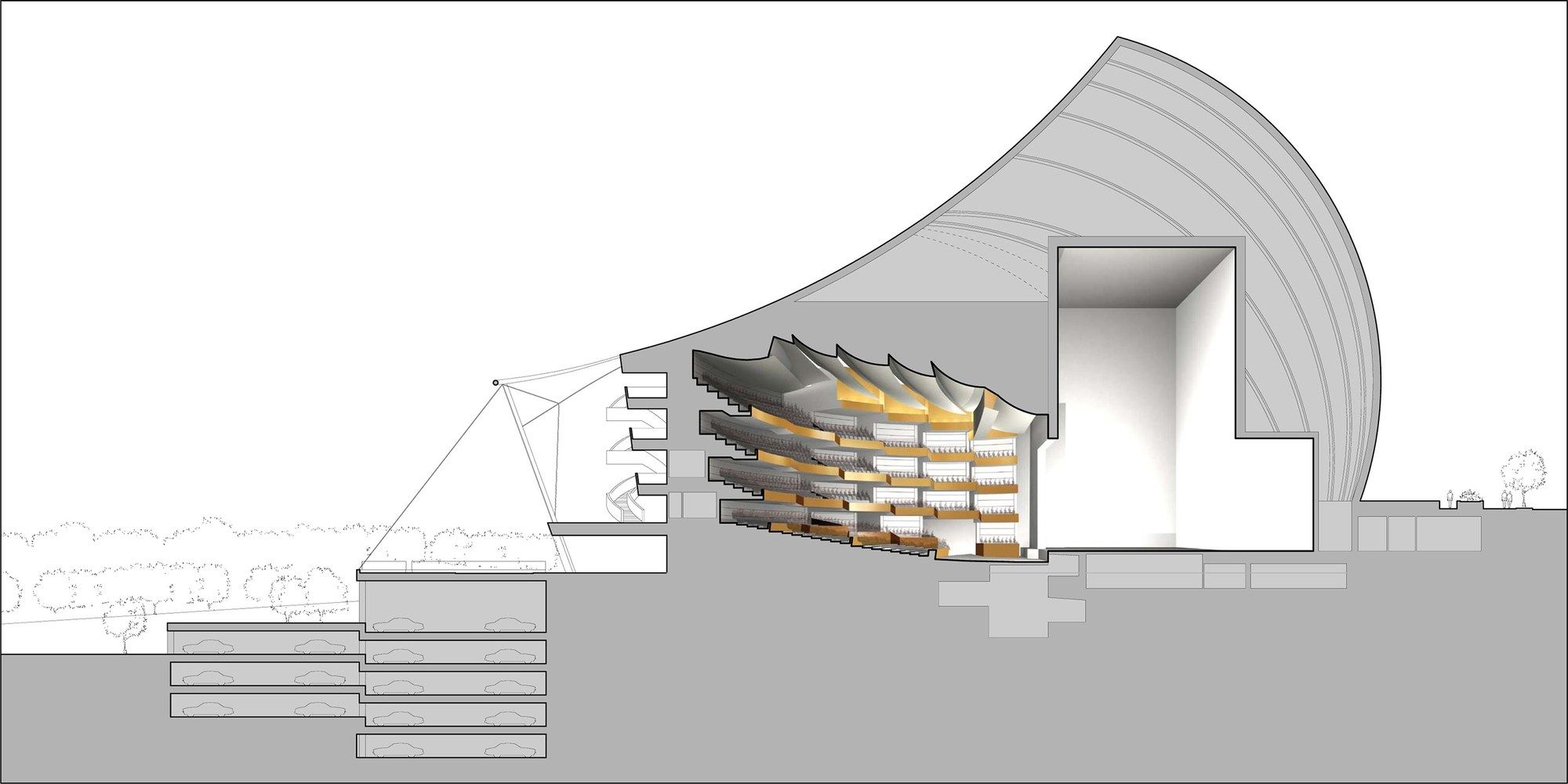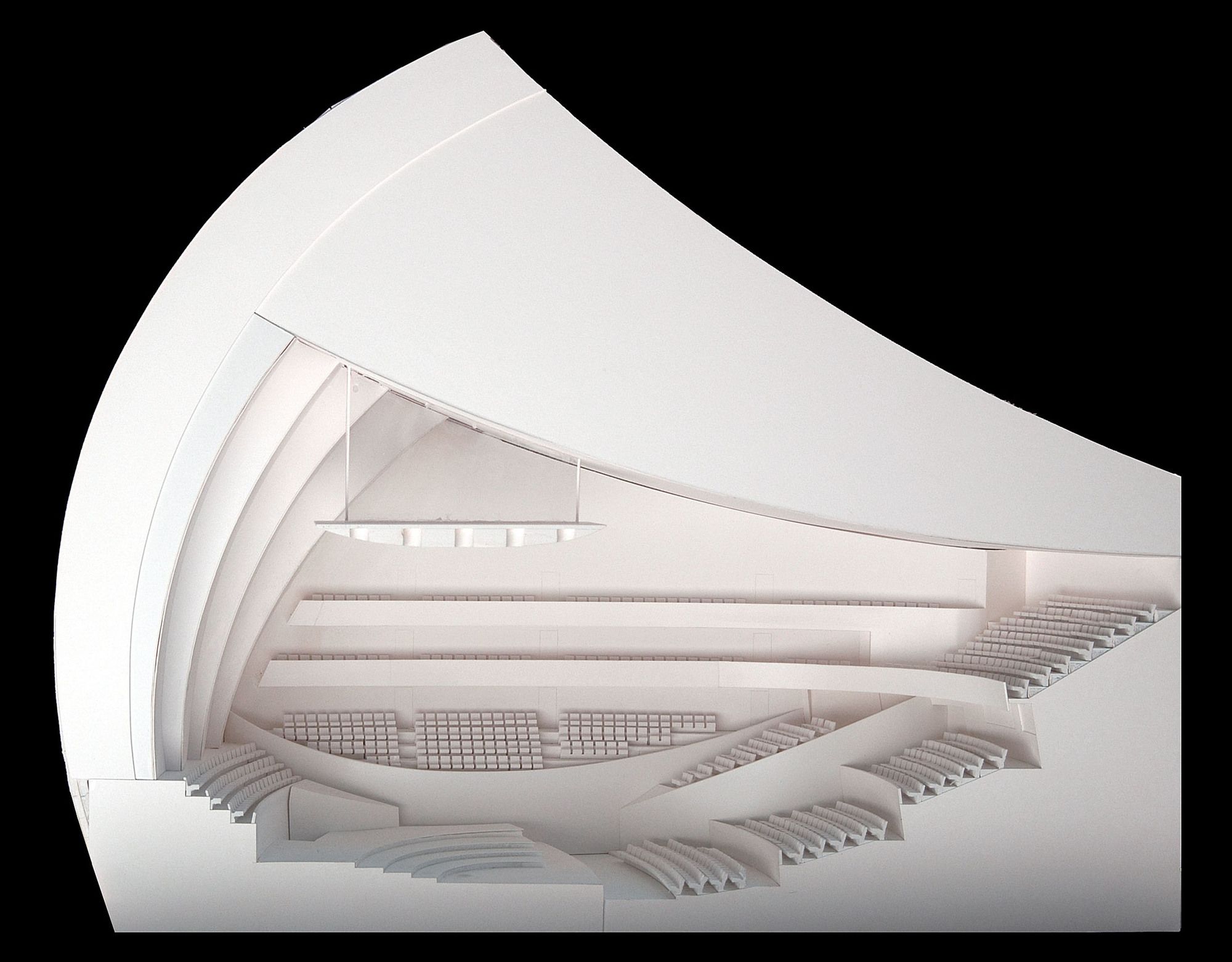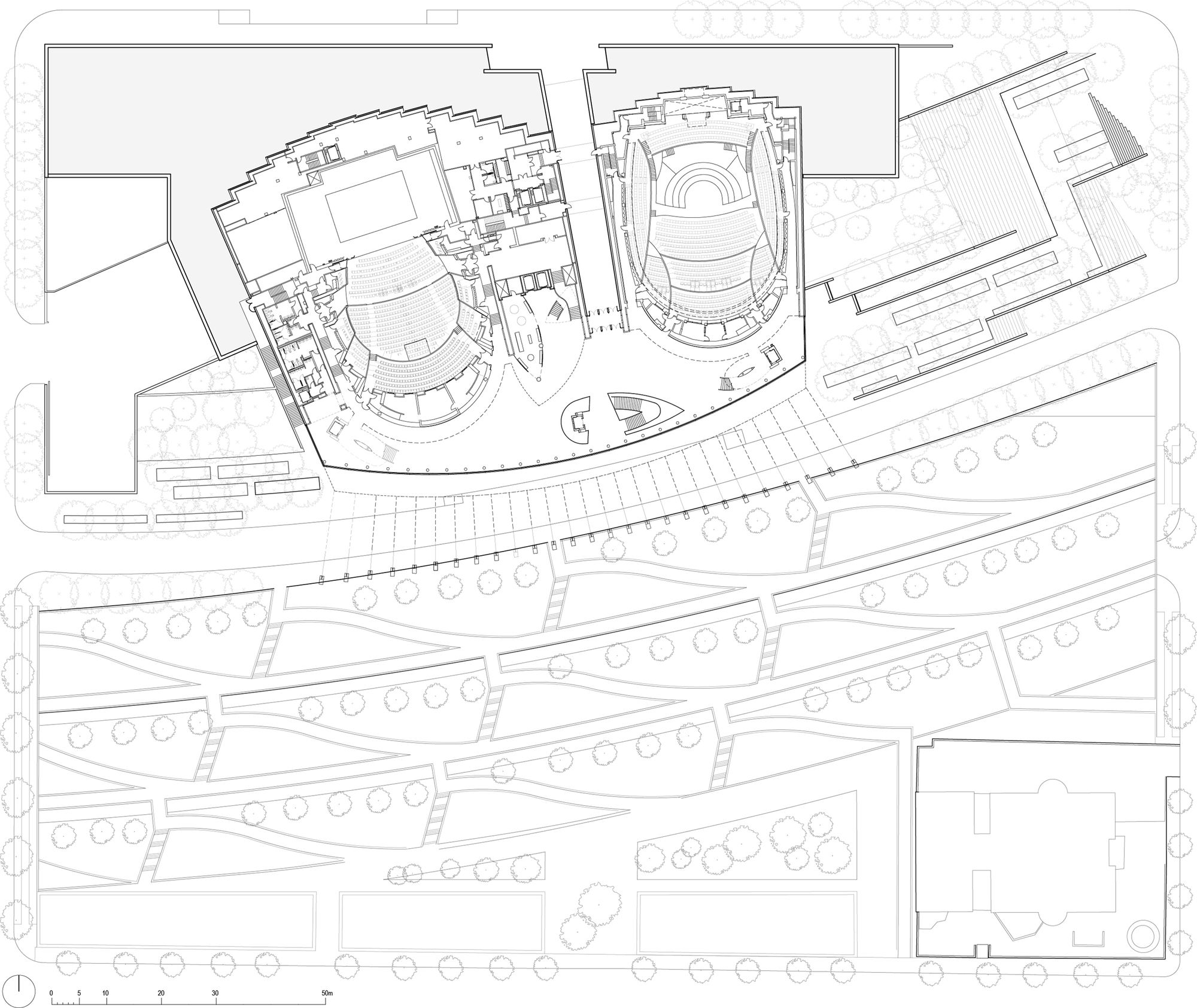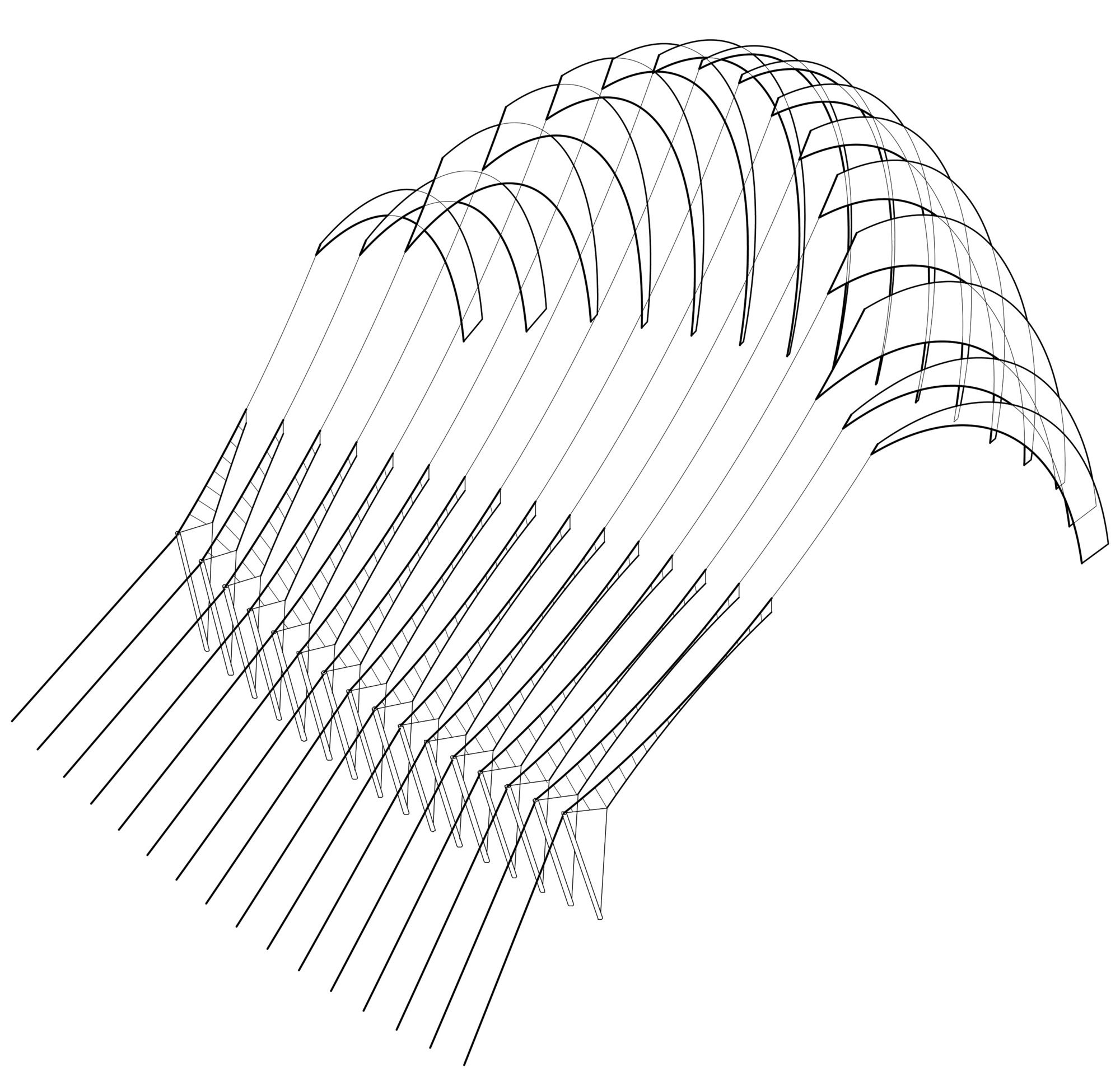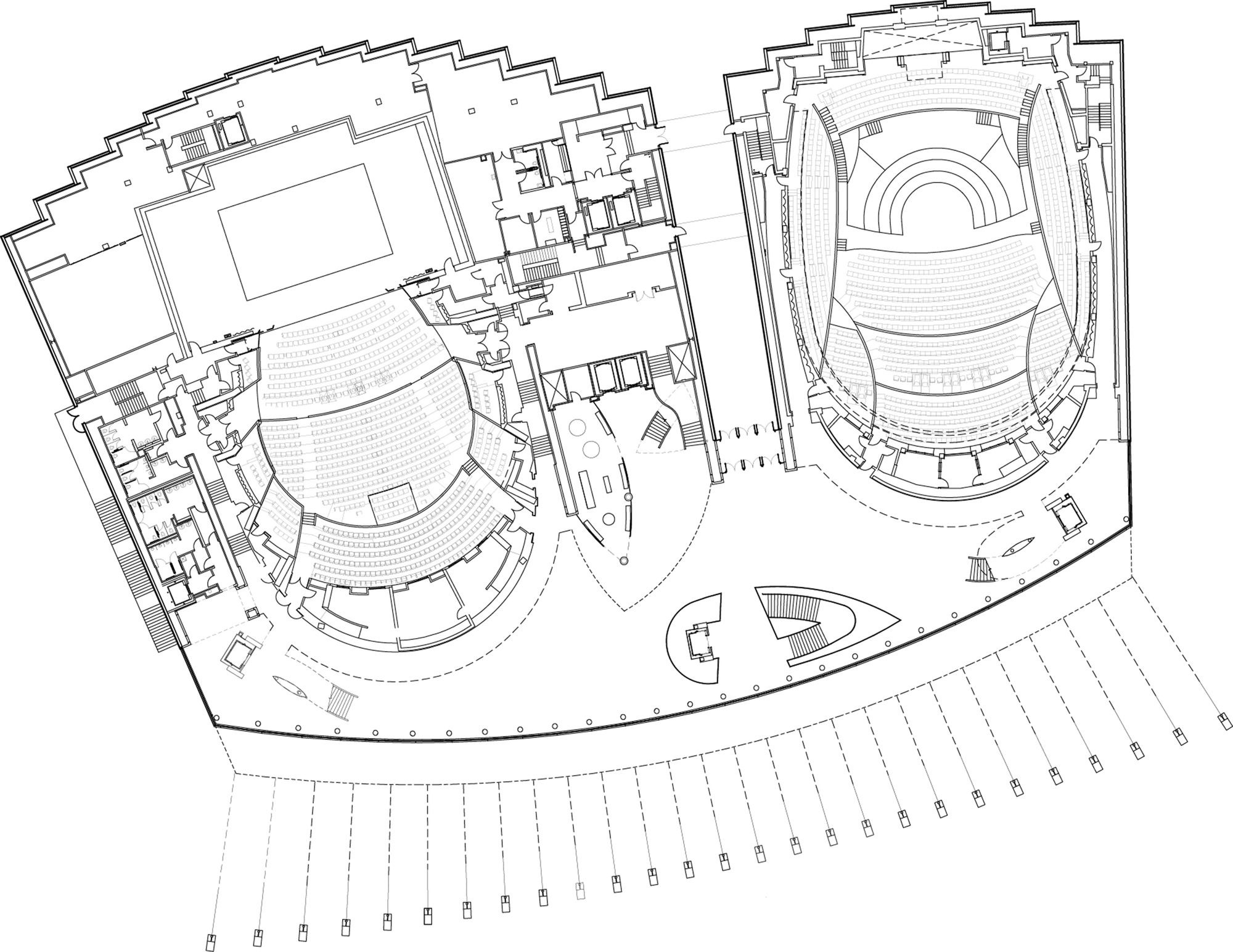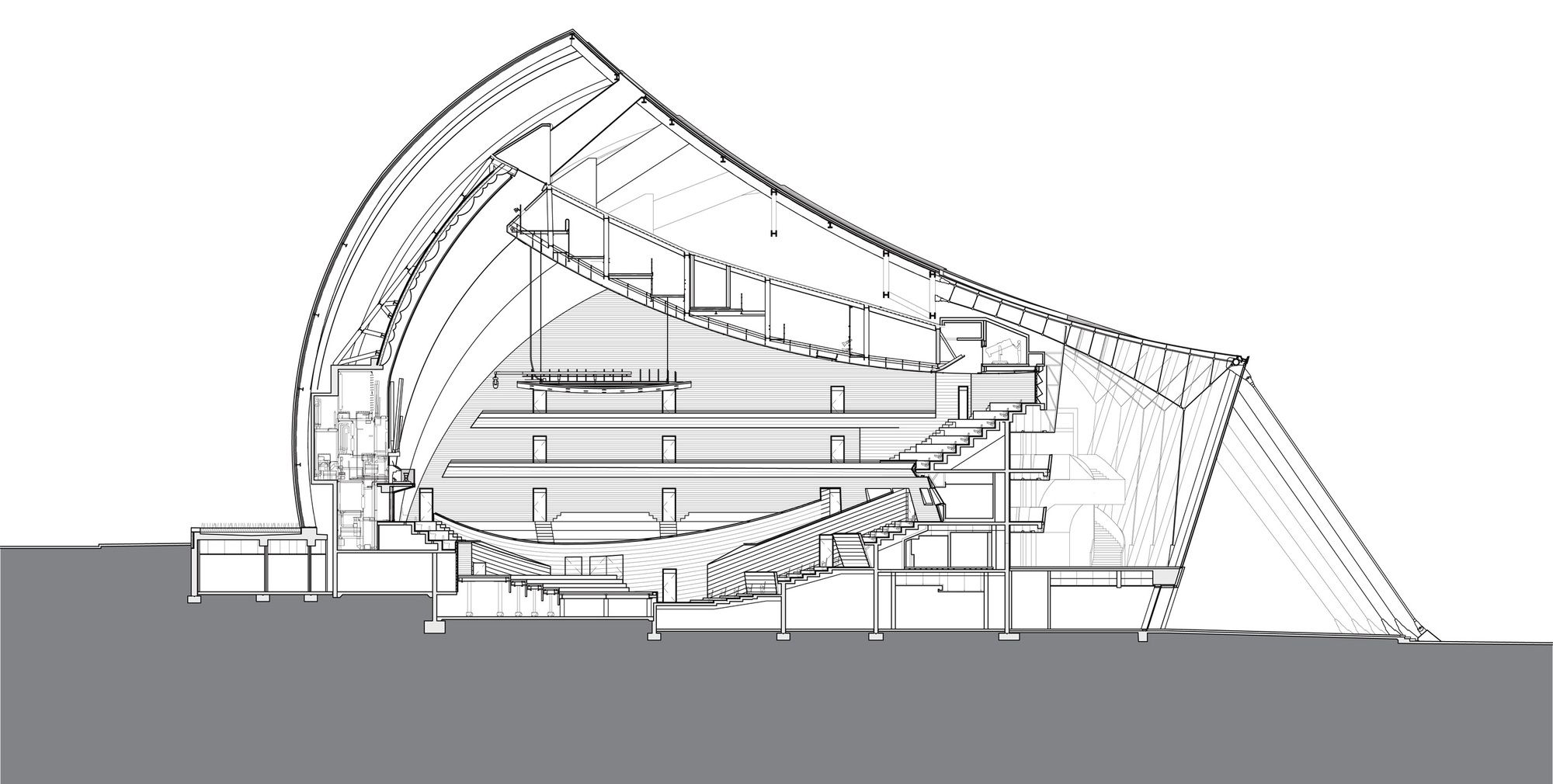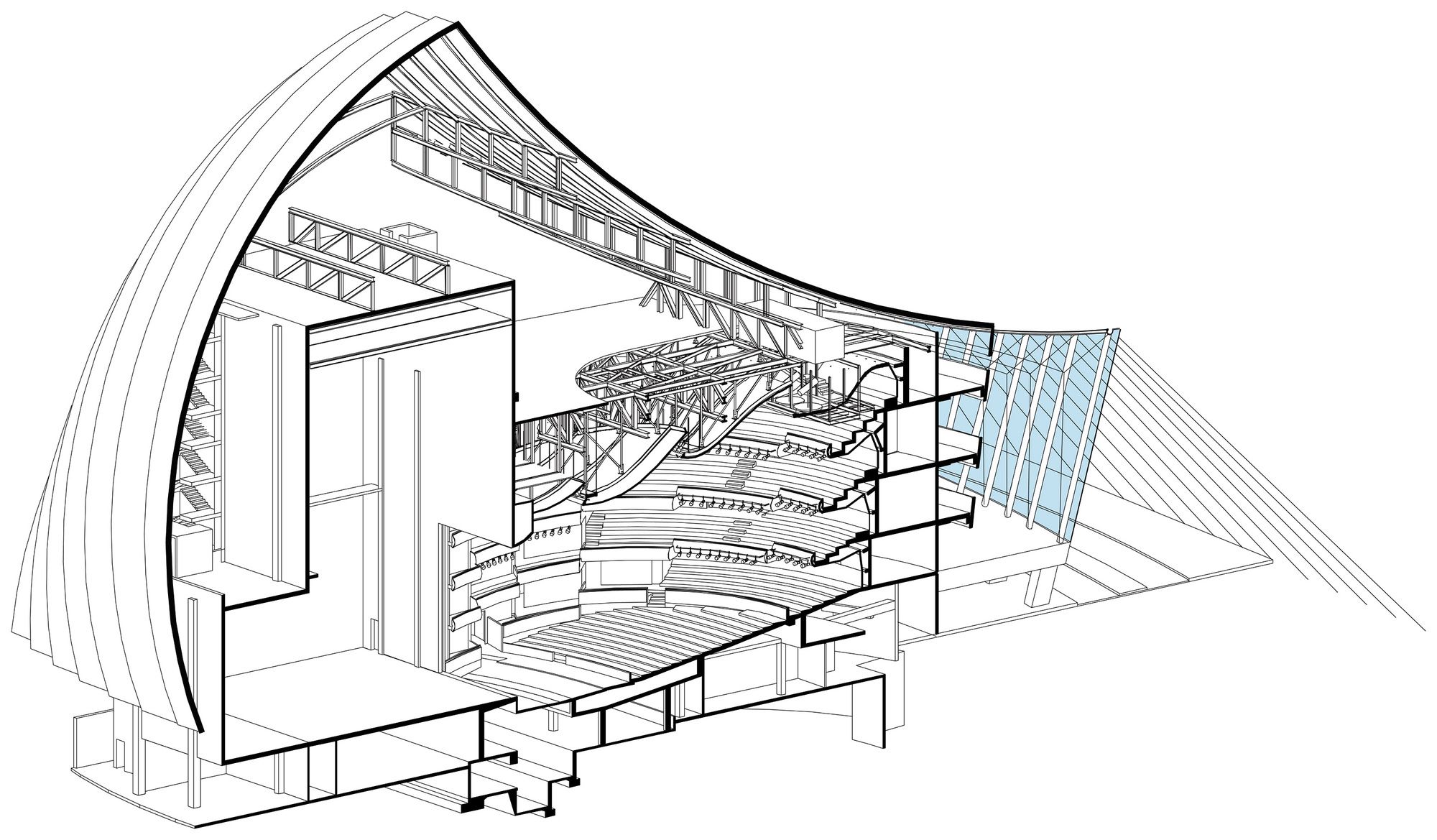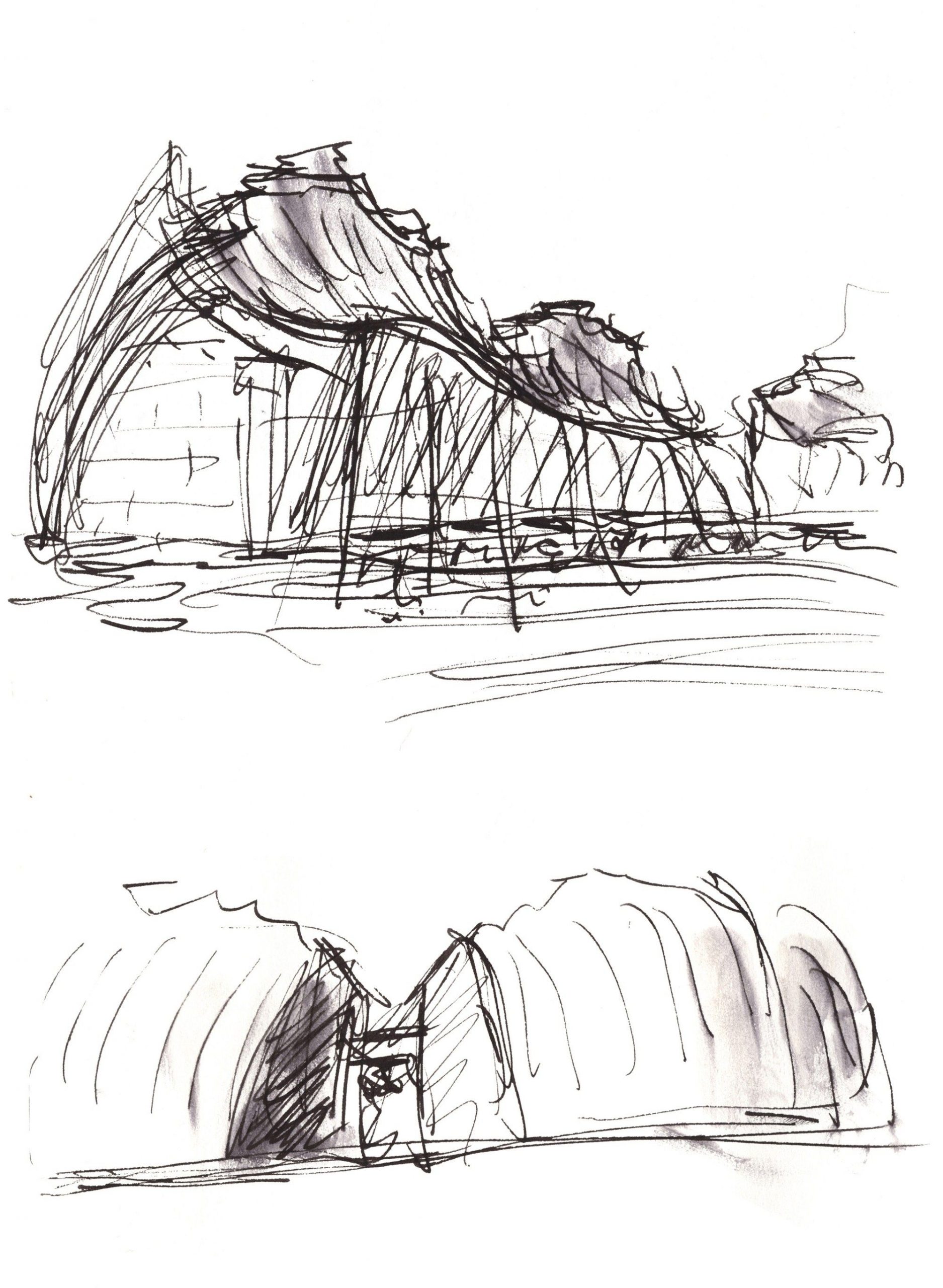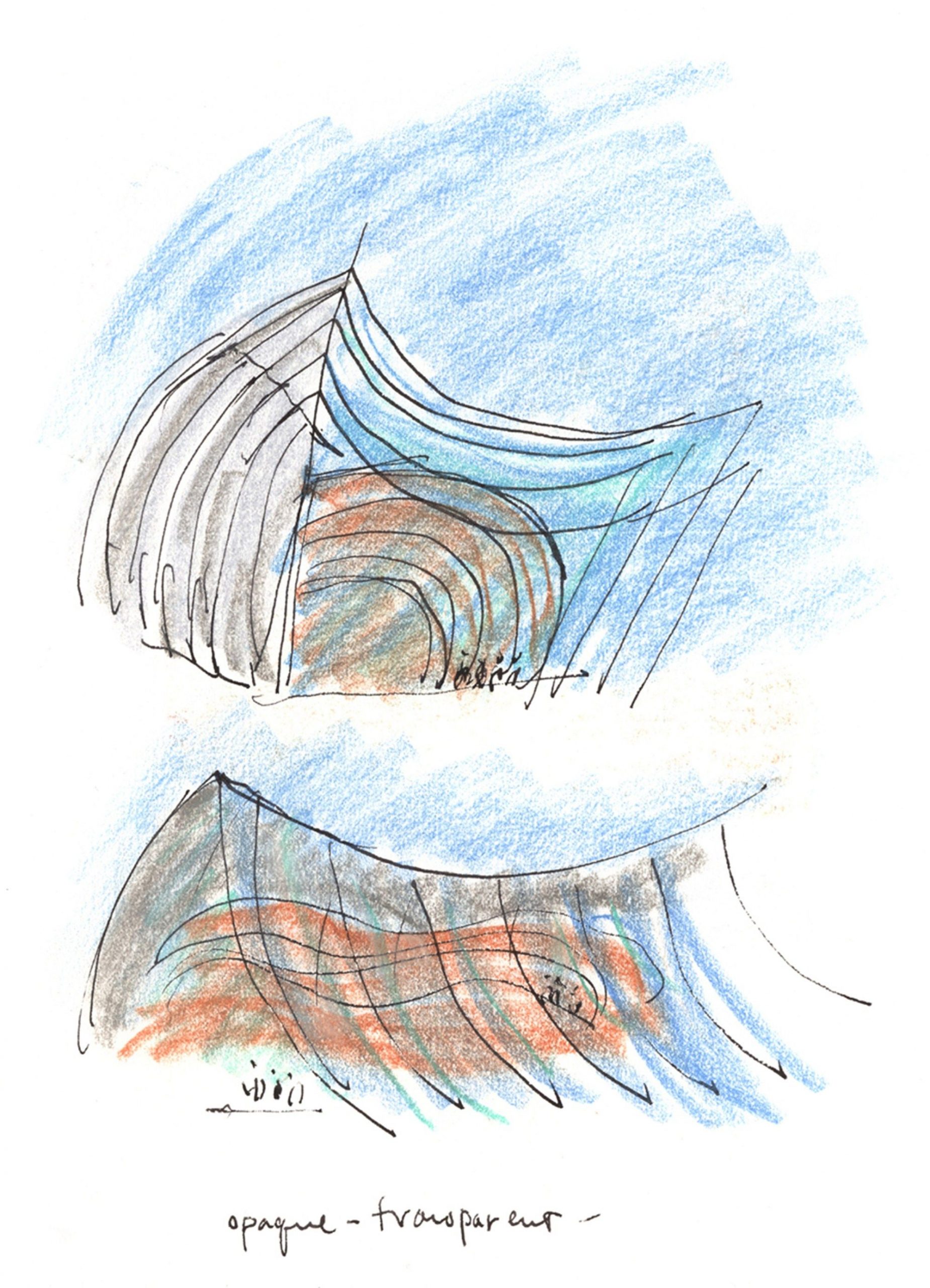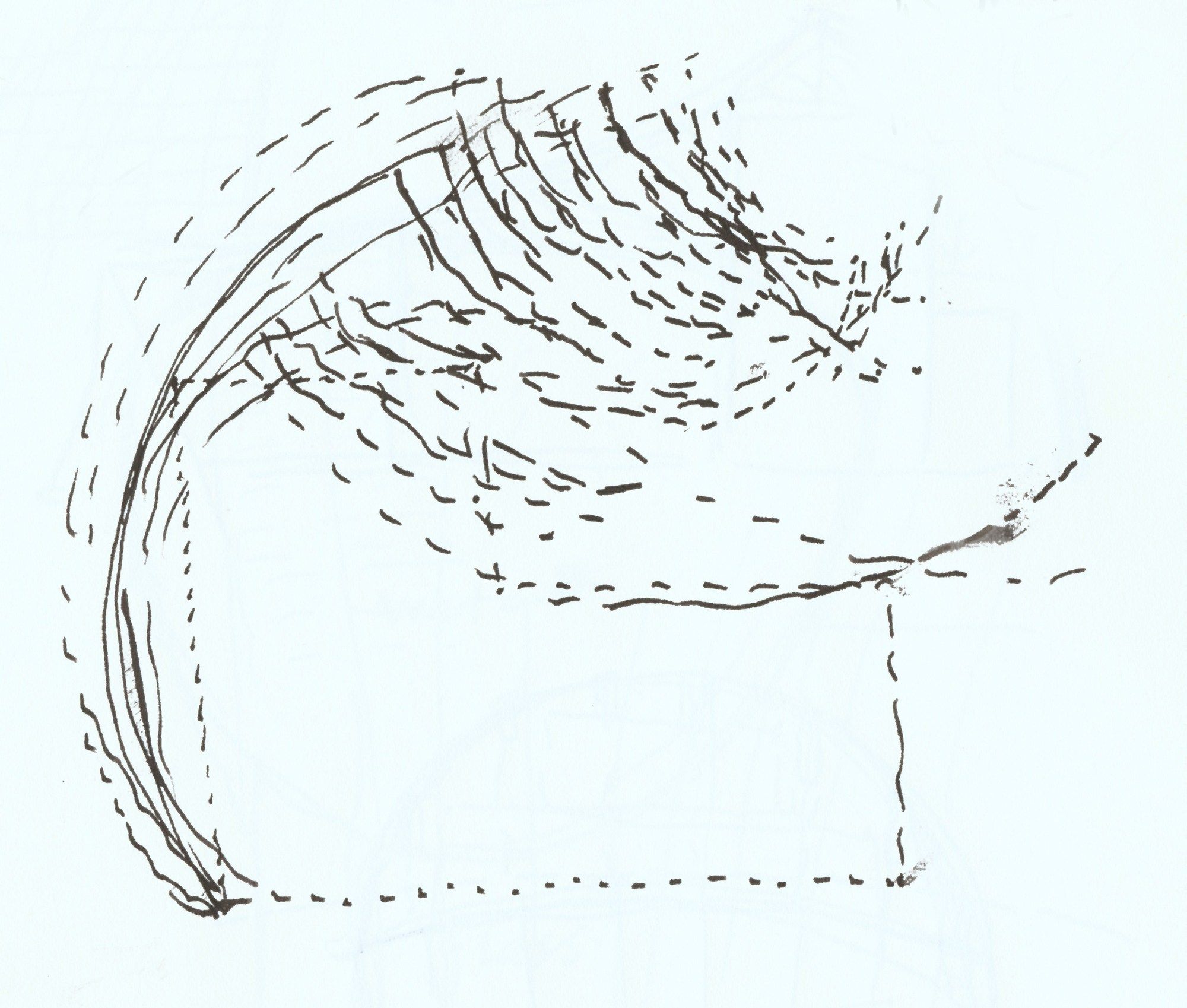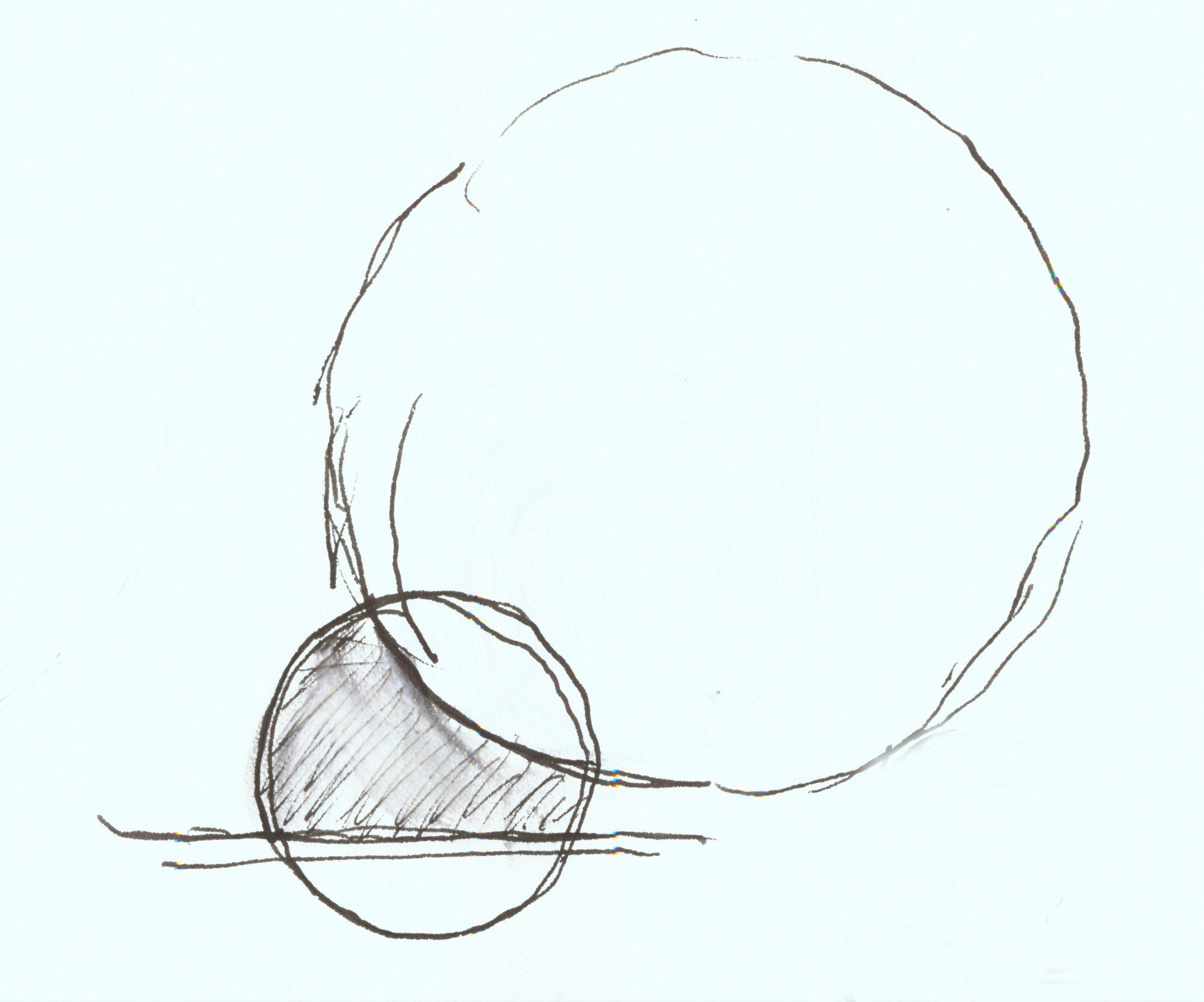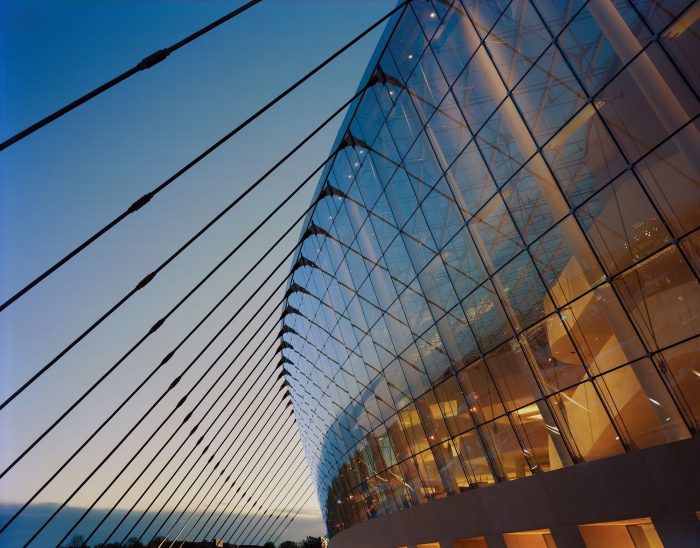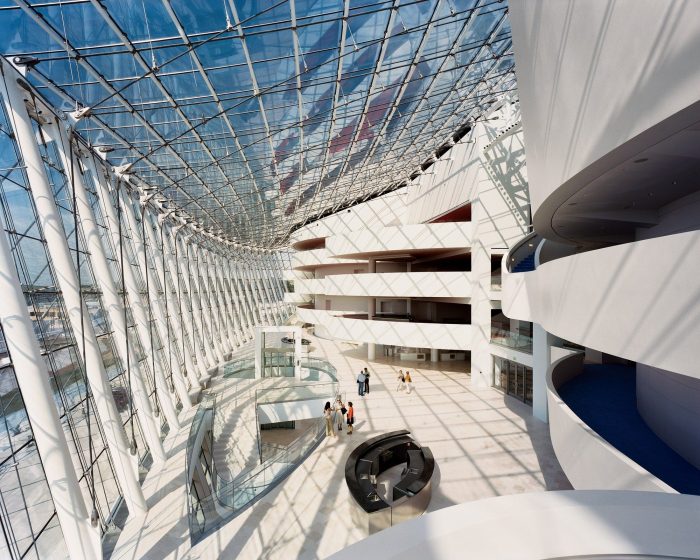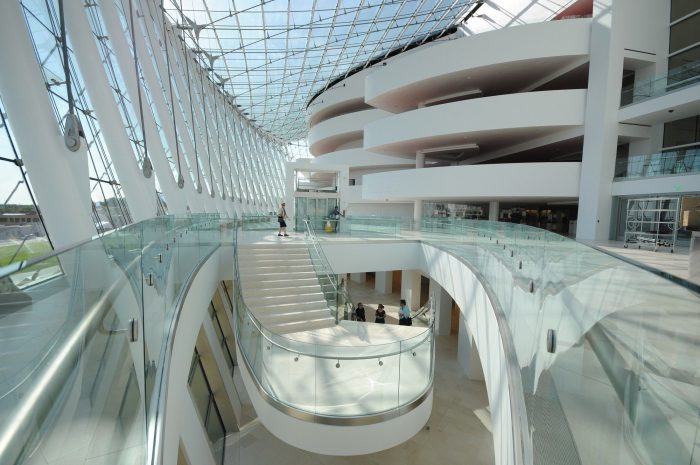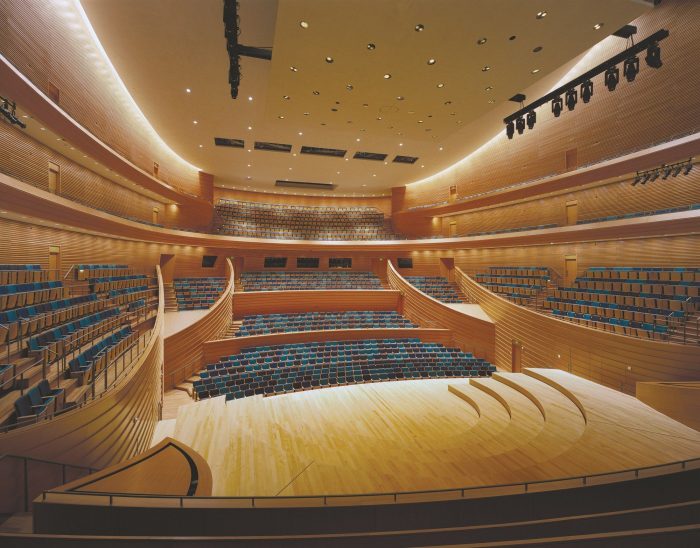Kauffman Center for the Performing Arts
The opportunity to design a major new performing arts center was precipitated by two significant decisions: the selection of an extraordinary site crowning the escarpment overlooking the historic warehouse district and the new entertainment district, affording a 180° view of the horizon; and the decision to construct two dedicated halls for symphony, ballet, opera, and theater.
Downtown Kansas City, set upon a plateau, extends southwards towards an escarpment from where it descends, opening to an expansive view, which is further accentuated by the flat prairie landscape. To the north, one sees the drama of the downtown skyline with its grid of streets framing the property and the Kansas City Convention Center.
The halls are served by a series of access balconies fronting on the great hall, forming two conical stacked rings of white plaster. The thousands of people mingling before and after performances and intermissions are theatrically visible to one another. Thus, the great hall with its surrounding balconies is a counterpoint to the theaters within; the theater of the public realm, where the celebrating public are visible to the southern sweep of the city.
From the outset, we wanted a hall that was intimate and in which the public is engaged with the musicians in a feeling of embrace. Rather than the traditional frontal relationship of stage and audience, we surrounded the music makers with the public. With the 1,600 seat count, which makes great intimacy possible, we strove to have each and every person experience the music without a balcony or ceiling above them.
We also wanted the spatial experience within the hall to evoke the exterior design of the building. Thus, the fanning geometry of the northern facade is echoed within the interior, supporting the sculptural arrangement of the organ within it; as it reaches towards the ceiling it branches apart, forming skylights that allow the daylight and sun to penetrate and reflect upon the organ.
In counterpoint to the warm intimacy of Helzberg Hall, the Muriel Kauffman Theater is festive and exuberant. The three balconies envelop the hall in a horseshoe-like enclosure. Each balcony is broken down into a series of steps cascading from the center rear balcony to the individual boxes on either side of the stage. The stepping enhances sightlines and provides for a sense of intimacy and connection with the action on the stage. The balcony balustrades are a contemporary reinterpretation of the gilded, glittering, candle-lit balconies of 18th and 19th century theaters.
The lights reflect through the glass-like enclosure to form an ever-changing chandelier-like surface. The hall’s acoustic enclosure is composed of undulating walls, shaped like vertical stacked barrels and designed by Toyota for optimal sound reflection. To integrate these shapes into the whole, a series of slats provide a screen-like enclosure. A series of murals, conceived and designed by the students of the Kansas City Art Institute, are painted and illuminated directly on the acoustical structures. The overall effect is of a dynamic mural, rich in reds, greens, blues and yellows, fused into the geometry of the room.
Project Info.
Architects : Safdie Architects
Location : Kansas City, United States
Associate Architect : BNIM Architects
Year : 2011
Photographs : Tim Hursley, Michal Ronnen Safdie
Type : Cultural , Theater , Opera
